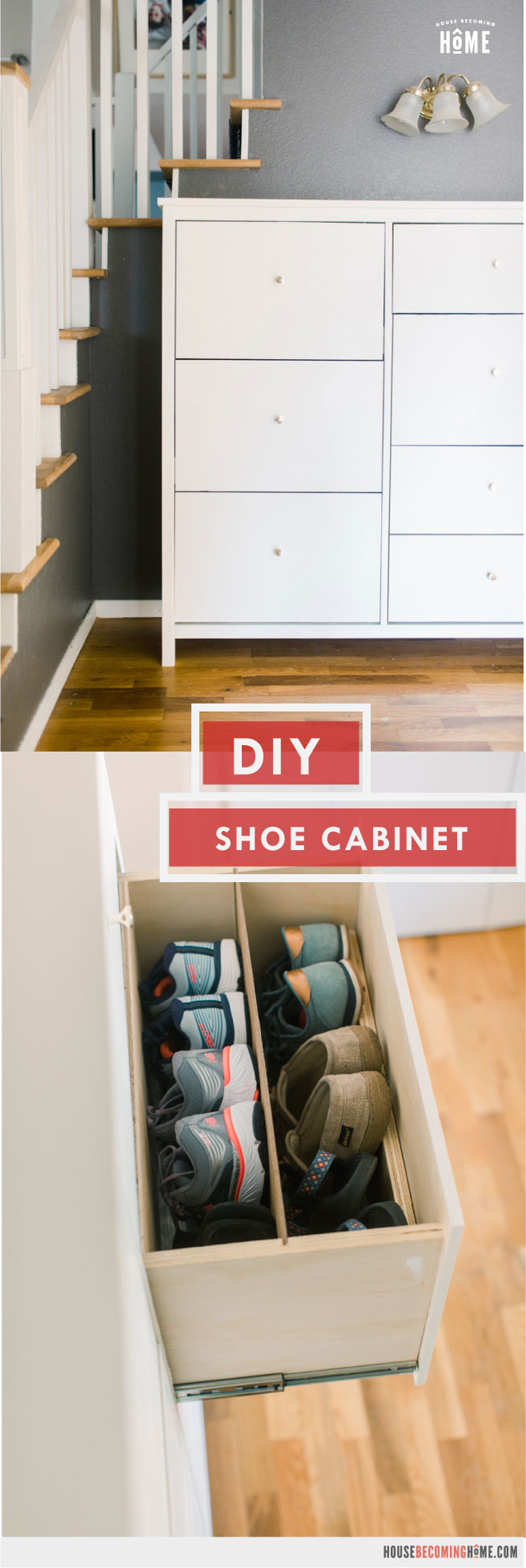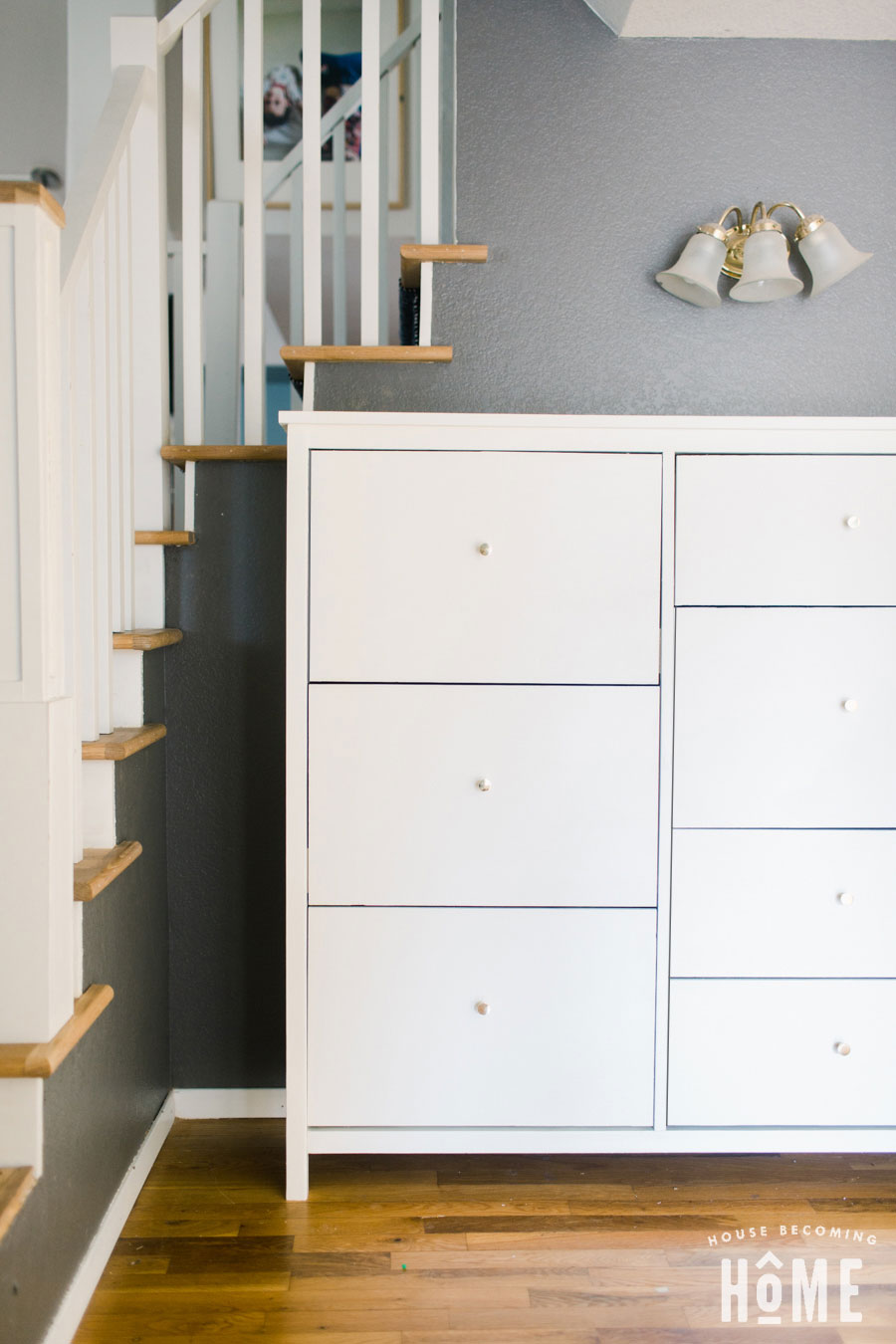
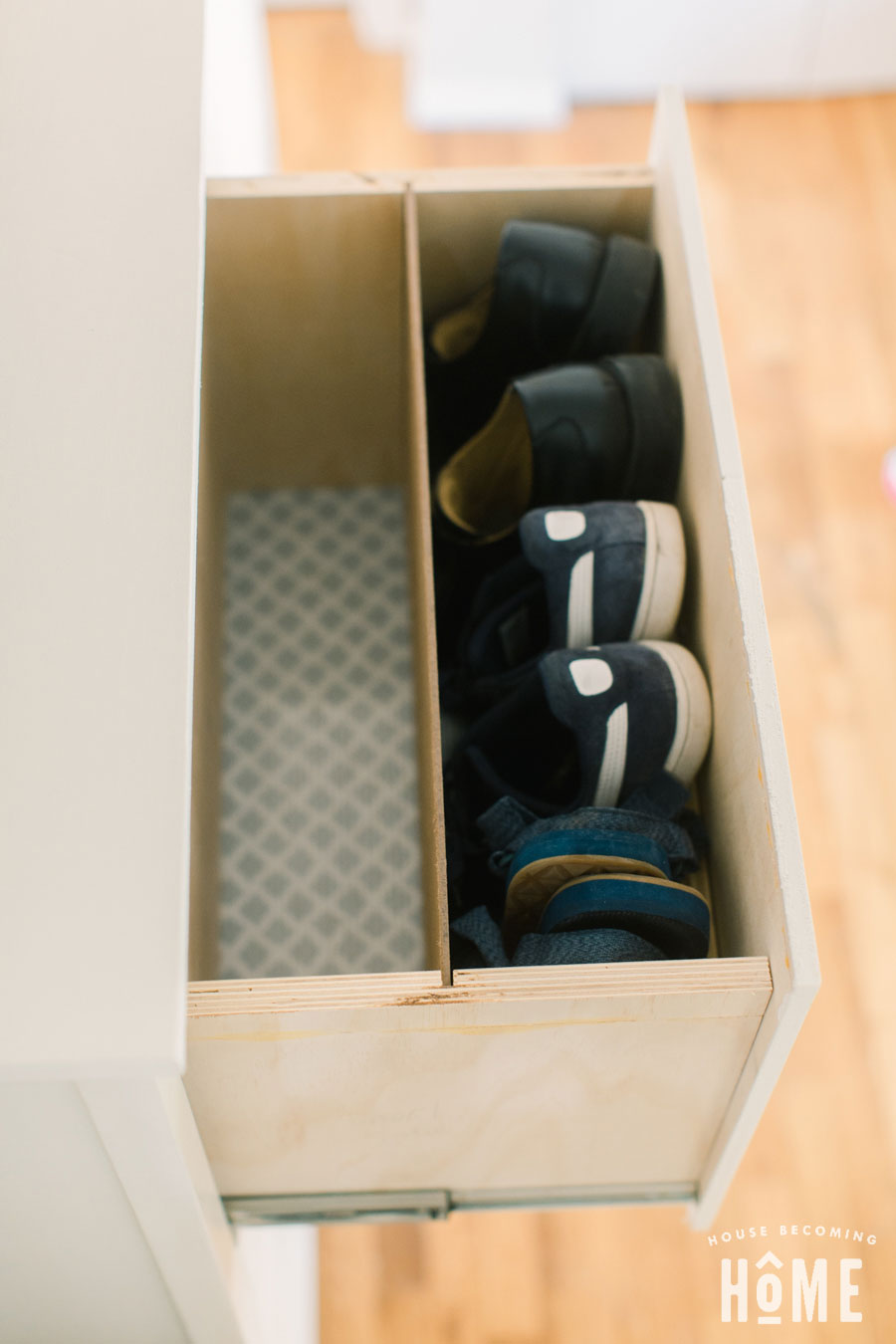
Anyone else have a shoe problem? Shoe problem, as in, shoes, shoes shoes . . . all over the place? Years ago I bought the shoe cabinet below to in an attempt to keep them organized. That was when we were a family of four. Seven years later we’re a family of six and this shoe cabinet was just not cutting it–short on space, yes, but also constantly falling apart and in need of repair. Our entry way ended up looking like this more often than not:
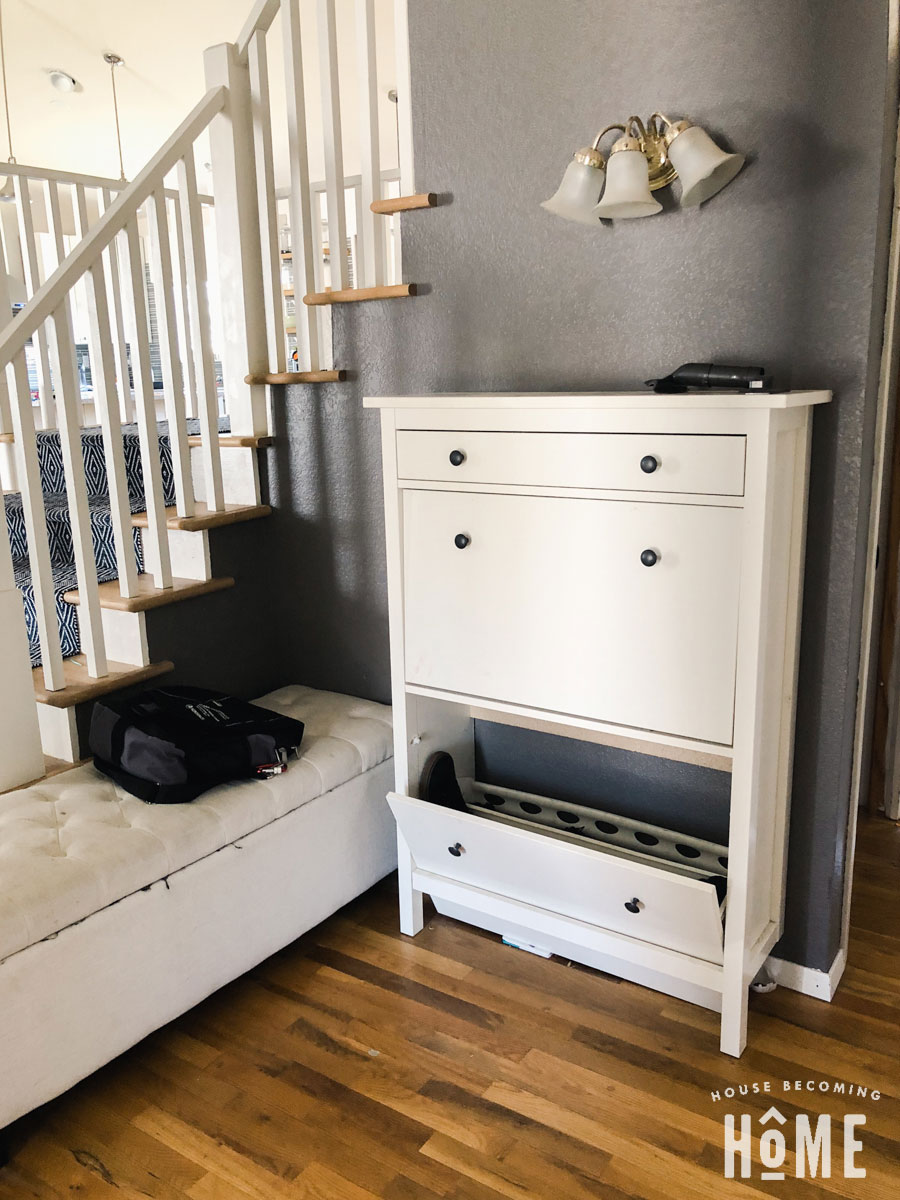
Eventually the bottom broke to the point of no-repair, so I began sketching out ideas for a DIY shoe cabinet.
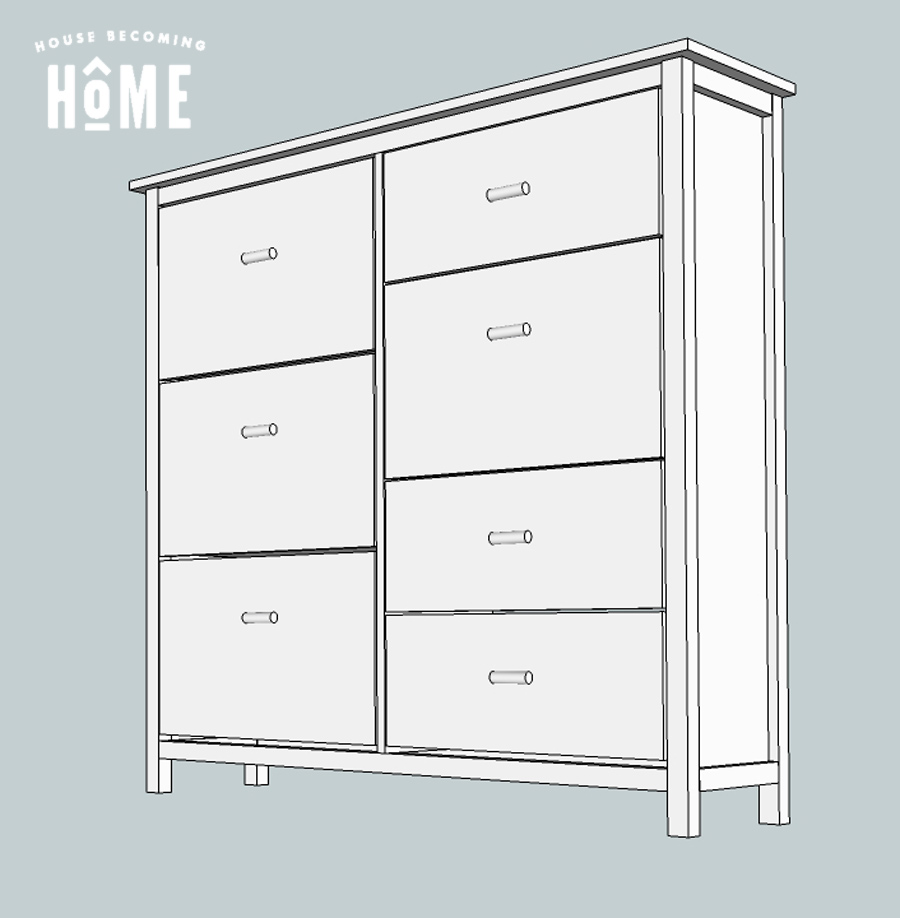
This DIY shoe cabinet has seven drawers–enough for each of us to have our own, plus one extra at the top for me to store hats and gloves. There are four tall drawers for the “big” people in our house. I measured Jim’s shoes (the biggest) to make sure the drawer was tall enough to accommodate them. Lucy and Jack have much smaller feet, so their drawers are smaller (with some room to grow), and placed at the bottom so they can take their shoes out and put them away without any help.
(These plans are basically a variation on the plans from our DIY 8 drawer dresser I made last year for our master bedroom–a less deep version with two different drawer sizes.)
House Becoming Home is a participant in the Amazon Services LLC Associates Program, an affiliate advertising program designed to provide a means for sites to earn advertising fees by advertising and linking to Amazon.com. Some links in this post may be affiliate links. Read my full disclosure policy here.
DIY Shoe Cabinet Instructions
Materials
- (2) 2×2
- (3 sheets) 3/4″ plywood
- Iron-on veneer edging
- 2x6x8ft., cut in half
- 1/4″ hardboard or plywood
- Contact paper & heavy-duty water resistant shelf liner
- Pocket hole screws
- 18-gauge staples
- Wood glue
- Paint/Stain of choice and polyurethane
- (7 pairs) 12″ Drawer slides
- Drawer knobs or pulls
Tools
- Measuring tape
- Carpenter’s square
- Quick Release Clamps
- Iron & aluminum foil (if using veneer edging)
- Utility knife
- Staple gun
- Table Saw
- Miter Saw
- Jig Saw
- Drill & Impact Driver
- Kreg Jig & 90 degree pocket hole clamp
- Router with straight bit (or stacked dado blade on your table saw)
- Orbit sander + sandpaper
- Finishing tools depending on method (paintbrush/rag for stain, etc.)
- Safety gear: glasses, mask, ear protection, etc.
Step 1 : Build shoe cabinet shell
Begin by building the two sides. Cut 3/4″ plywood to size and add pocket holes along the top, bottom, and sides. Attach 2×2 to top and bottom with pocket hole screws, then attach 2×2 legs.
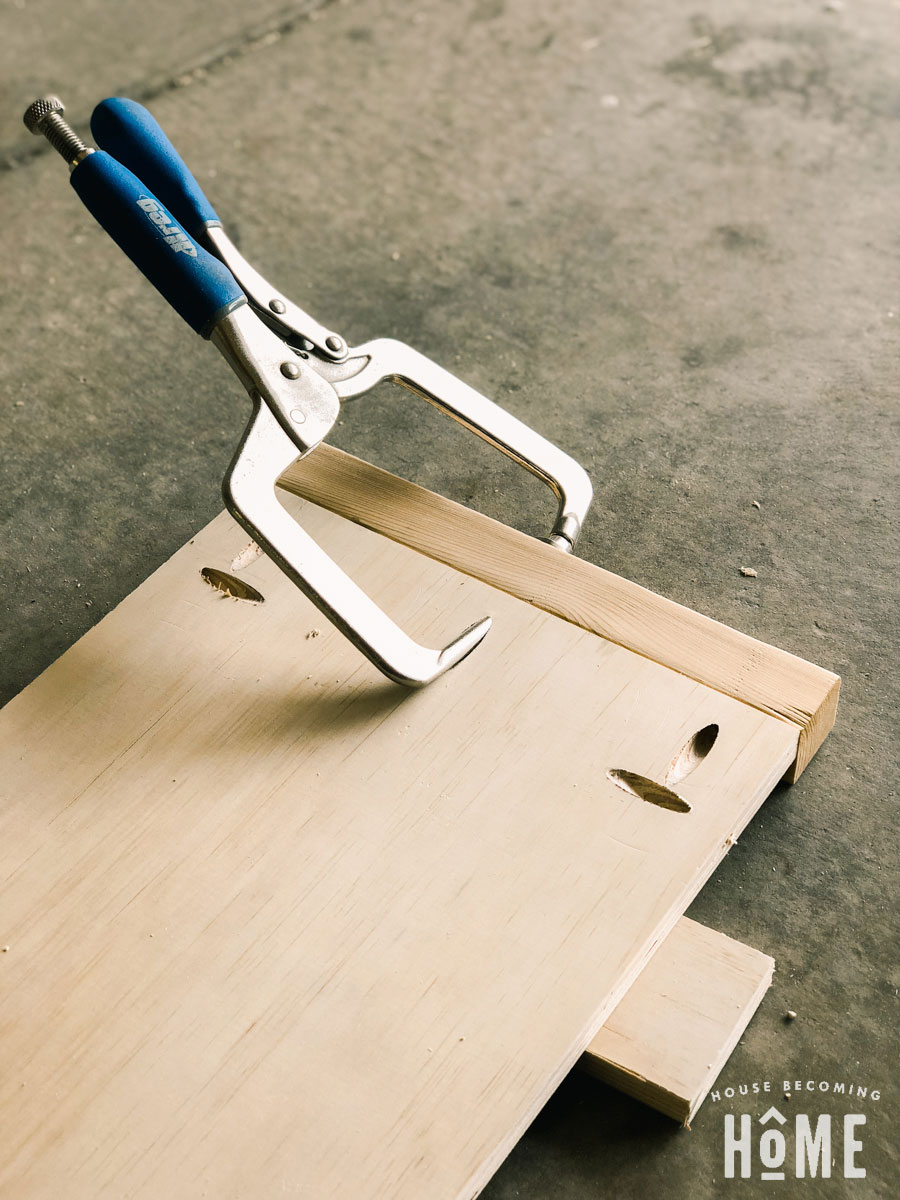
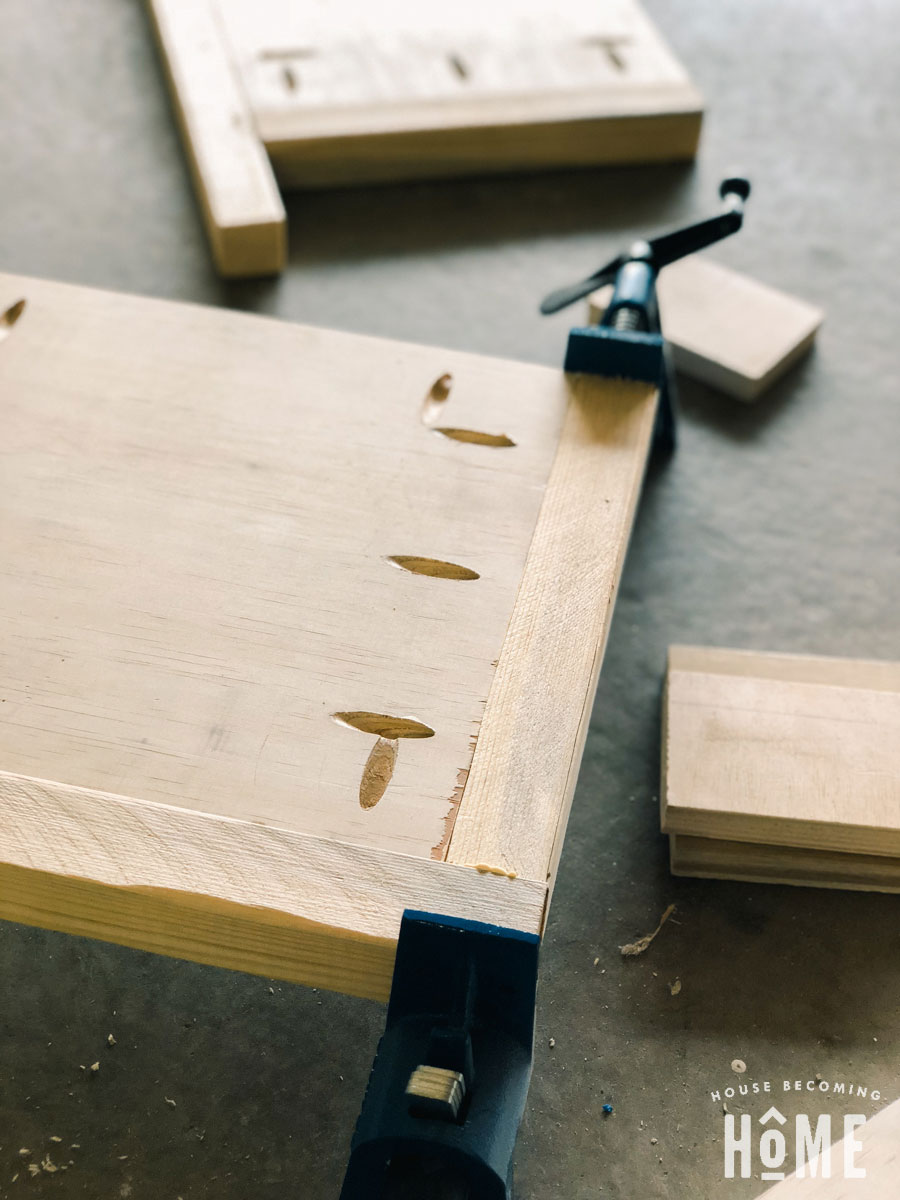
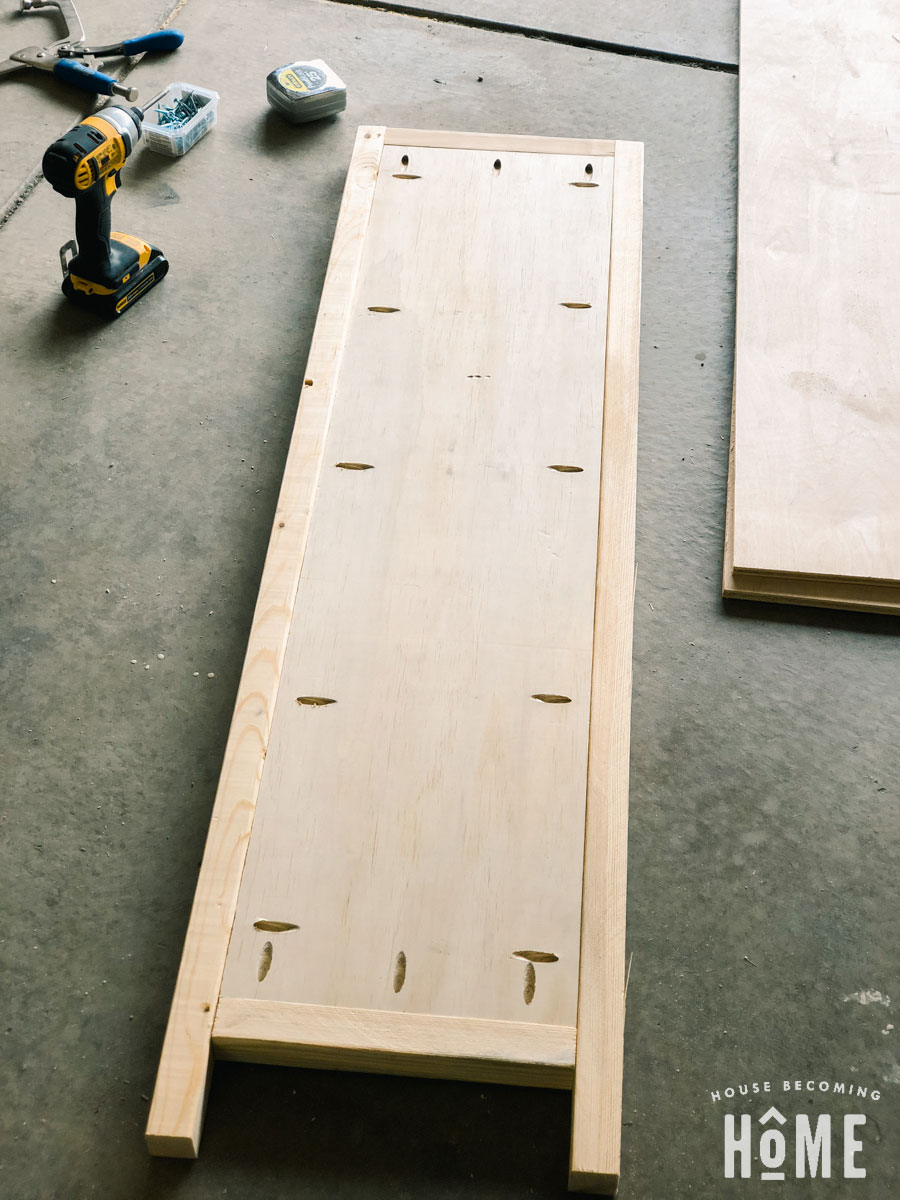
For the top and bottom supports I first cut a 2×6 in half, then cut both of the halves down the middle:
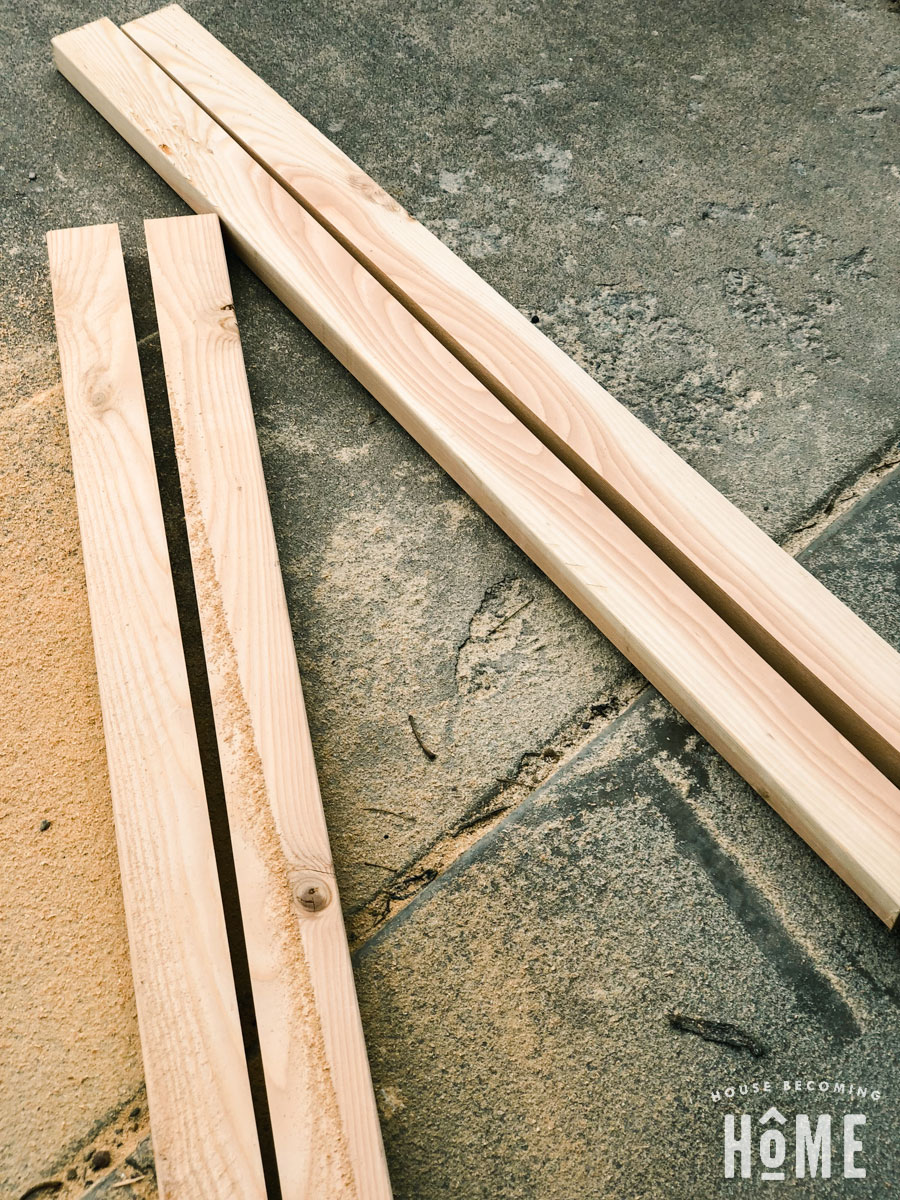
Add pocket holes on the undersides of the 2×6 halves, then screw into shoe cabinet sides
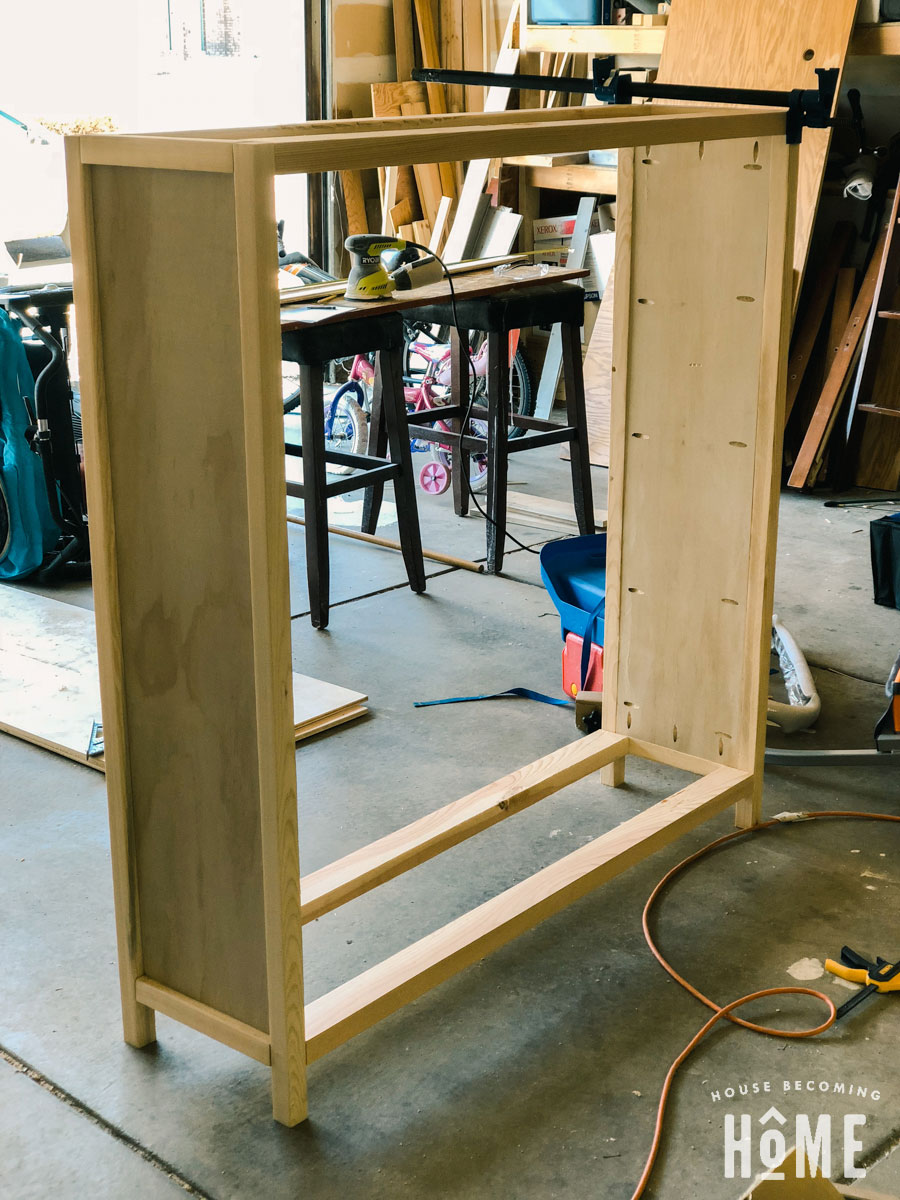
With pocket holes and screws, attach a piece of plywood (at least five inches tall), to the back side of the shoe cabinet (a 1×4 or a 1×6 works too). This adds a bit of stability, but it’s main purpose is to make this an anti-topple shoe cabinet–this will be the piece that is screwed into/attached to the wall studs.
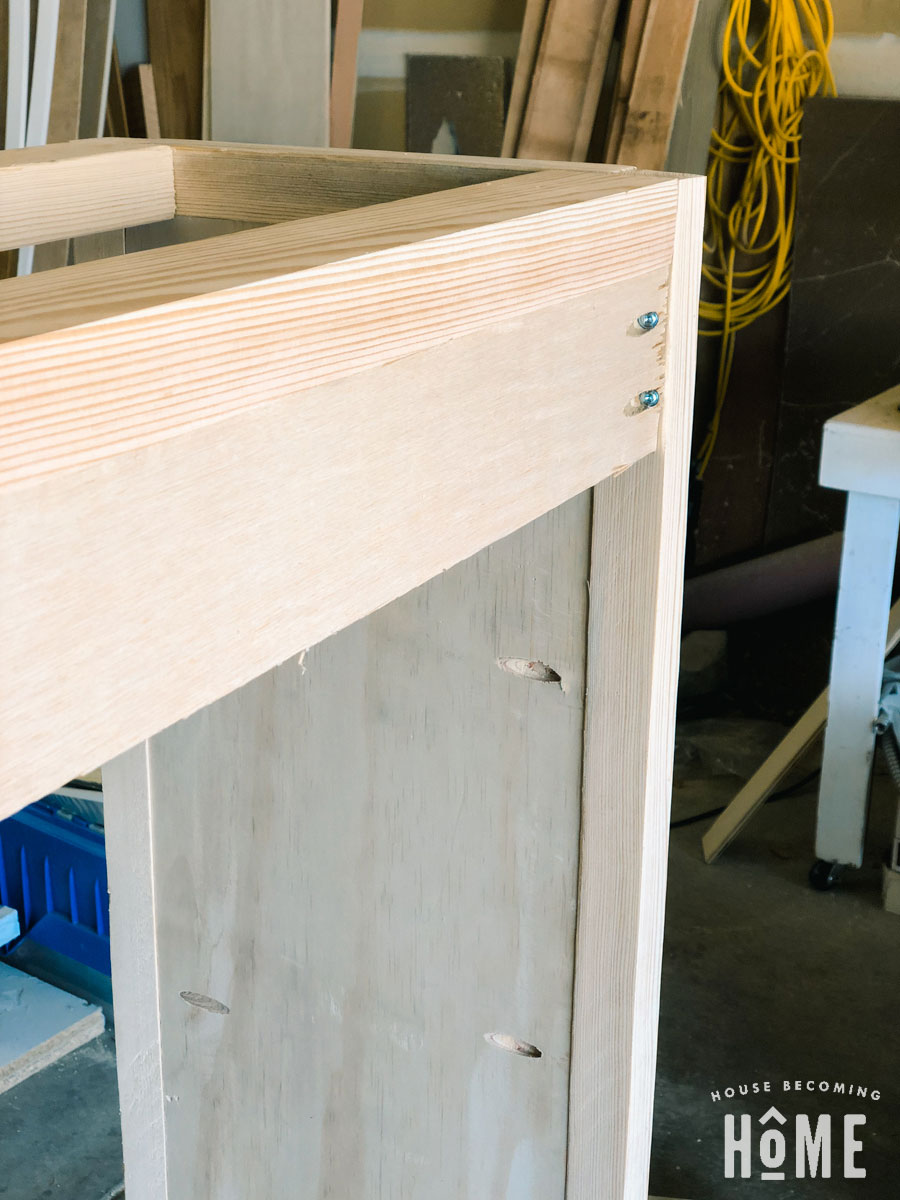
Step 2 : Add vertical cabinet divider to shoe cabinet
Cut the cabinet divider piece to size, then mark off the area that needs to be trimmed off to fit around the anti-topple piece. Trim with jig saw. Next, make pocket holes on the top and bottom in a spot lined up with the halved 2×6’s, where the screws will go:

Attach veneer edging to the visible side of the plywood.
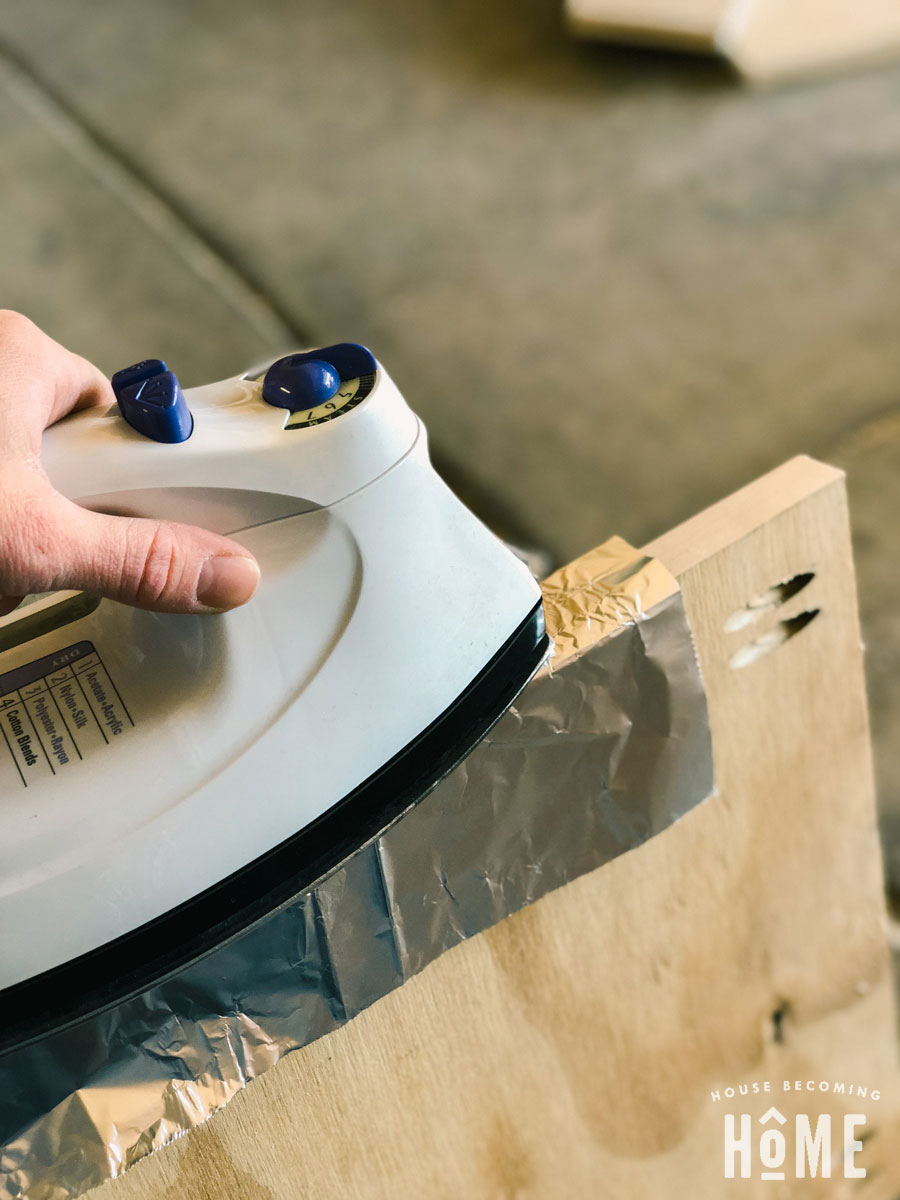
Screw cabinet divider into top and bottom supports:
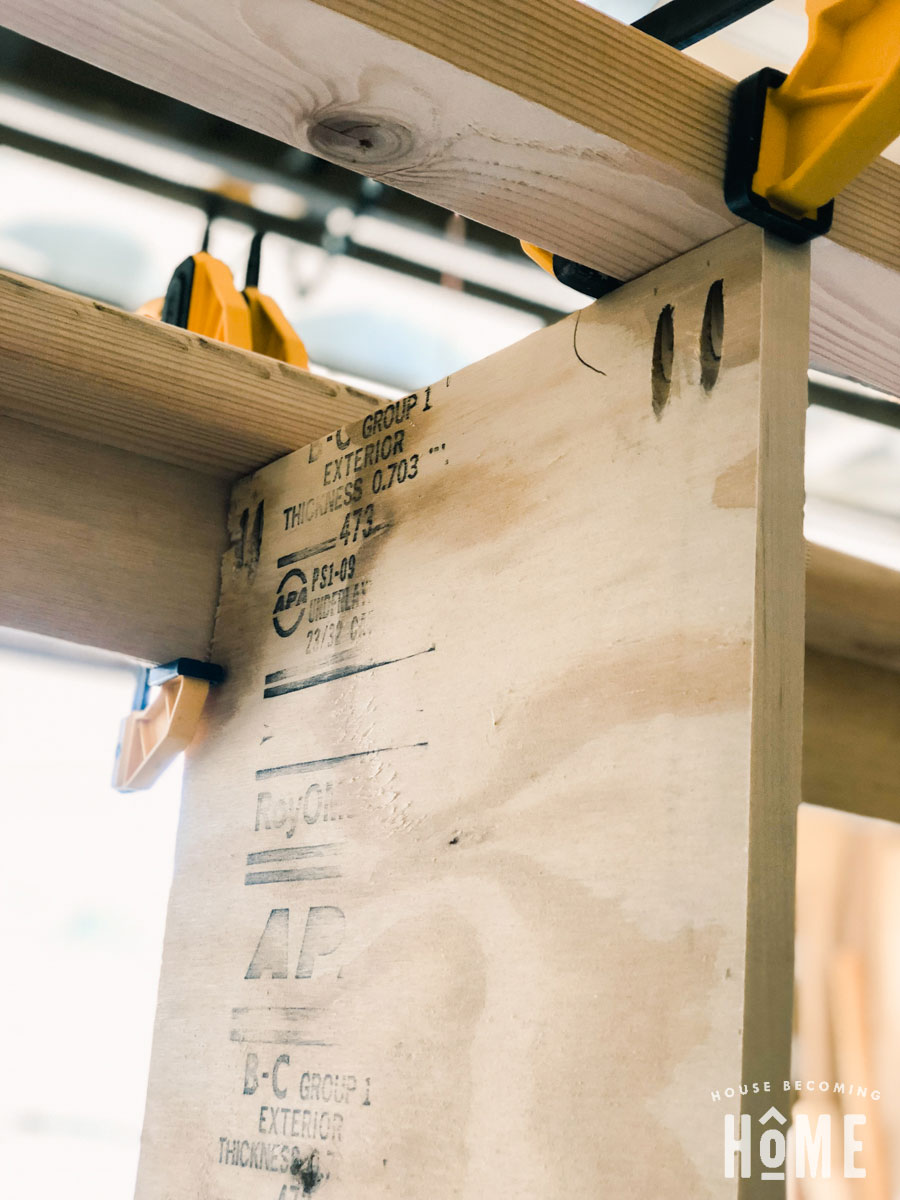
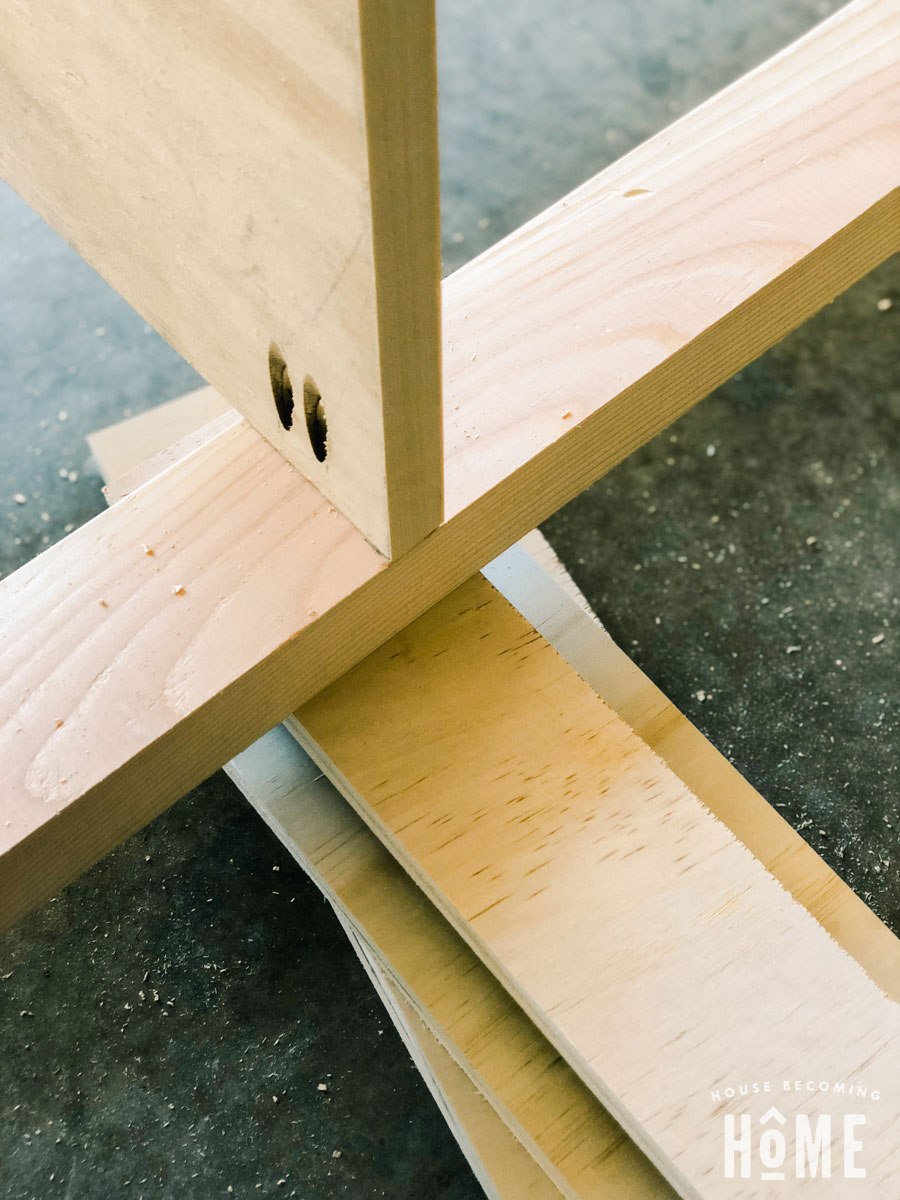
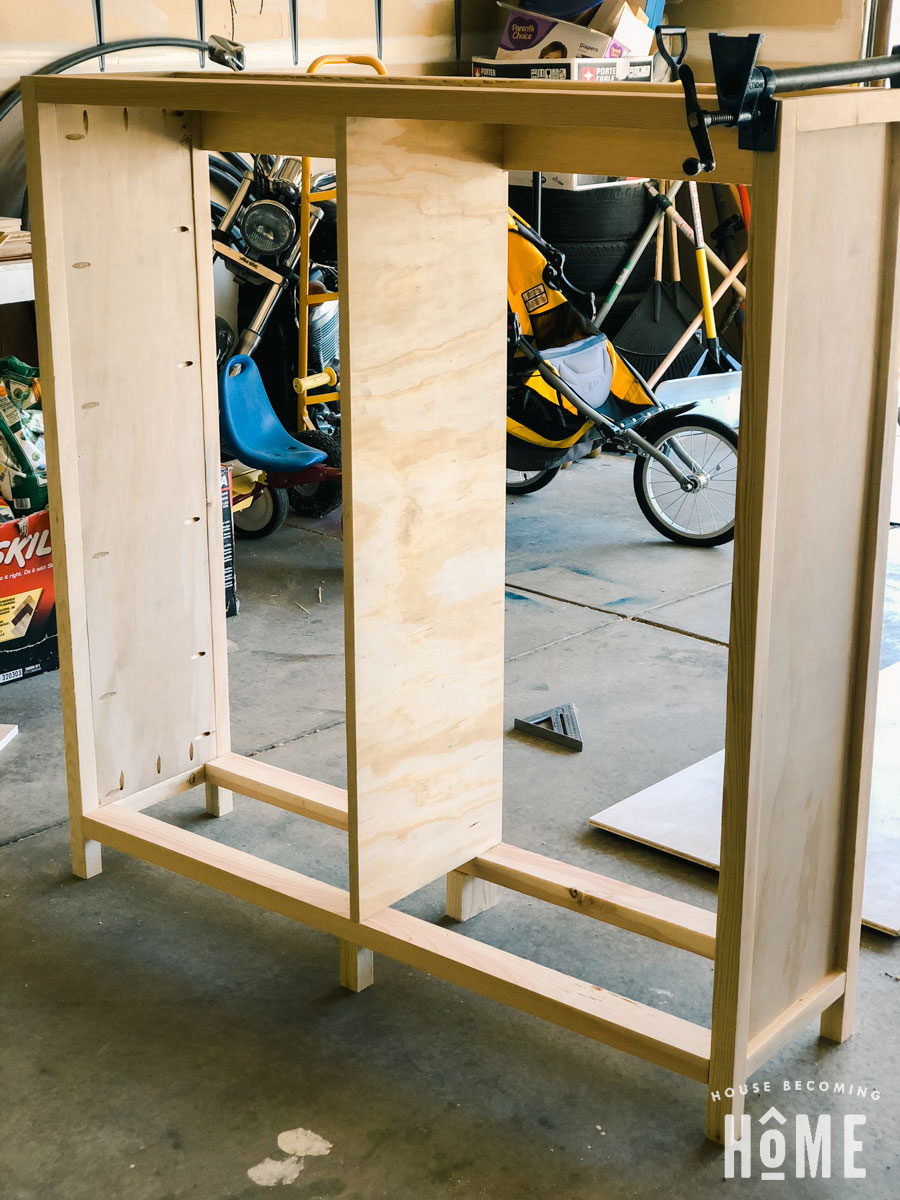
Step 3 : Make Shoe Cabinet Drawers
Cut pieces for drawers out of 3/4″ plywood and begin assembling. I made mine with pocket holes and screws.
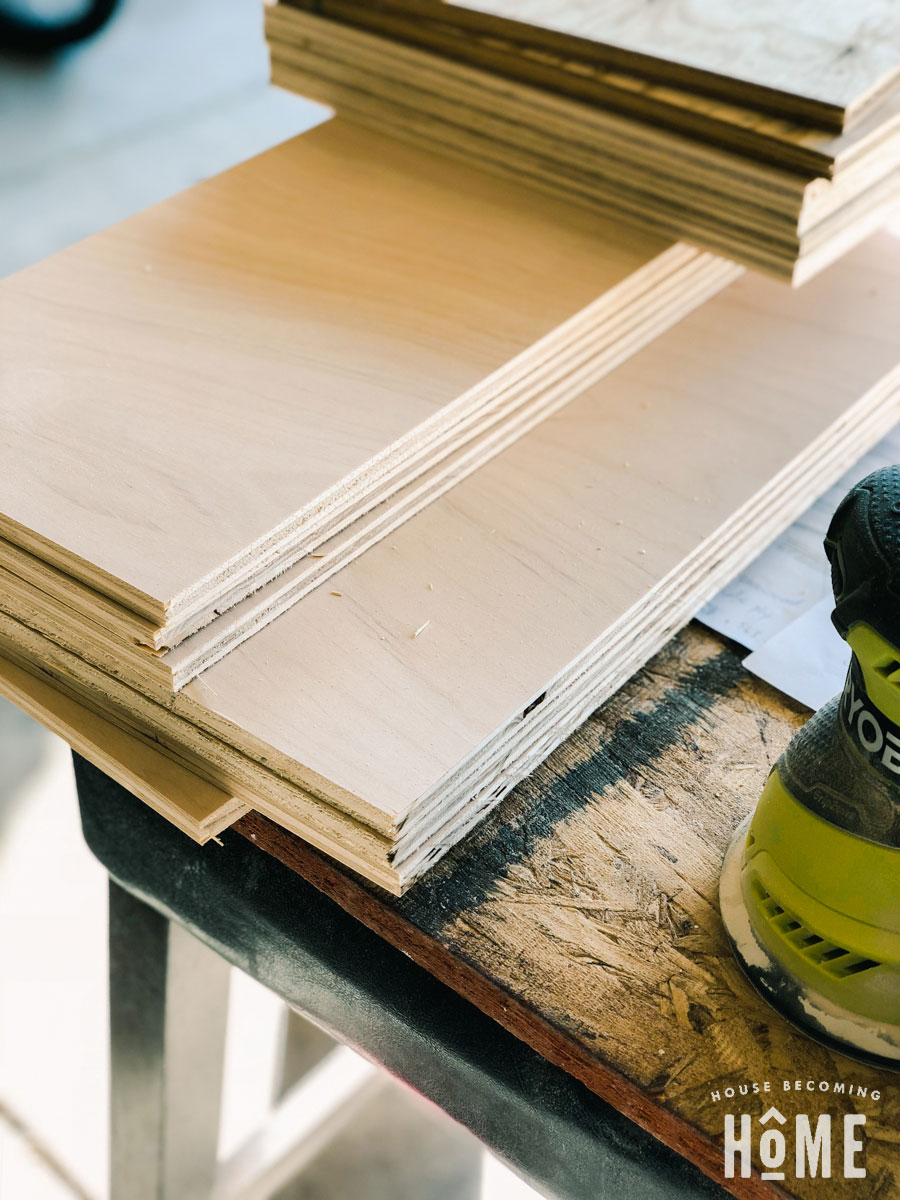
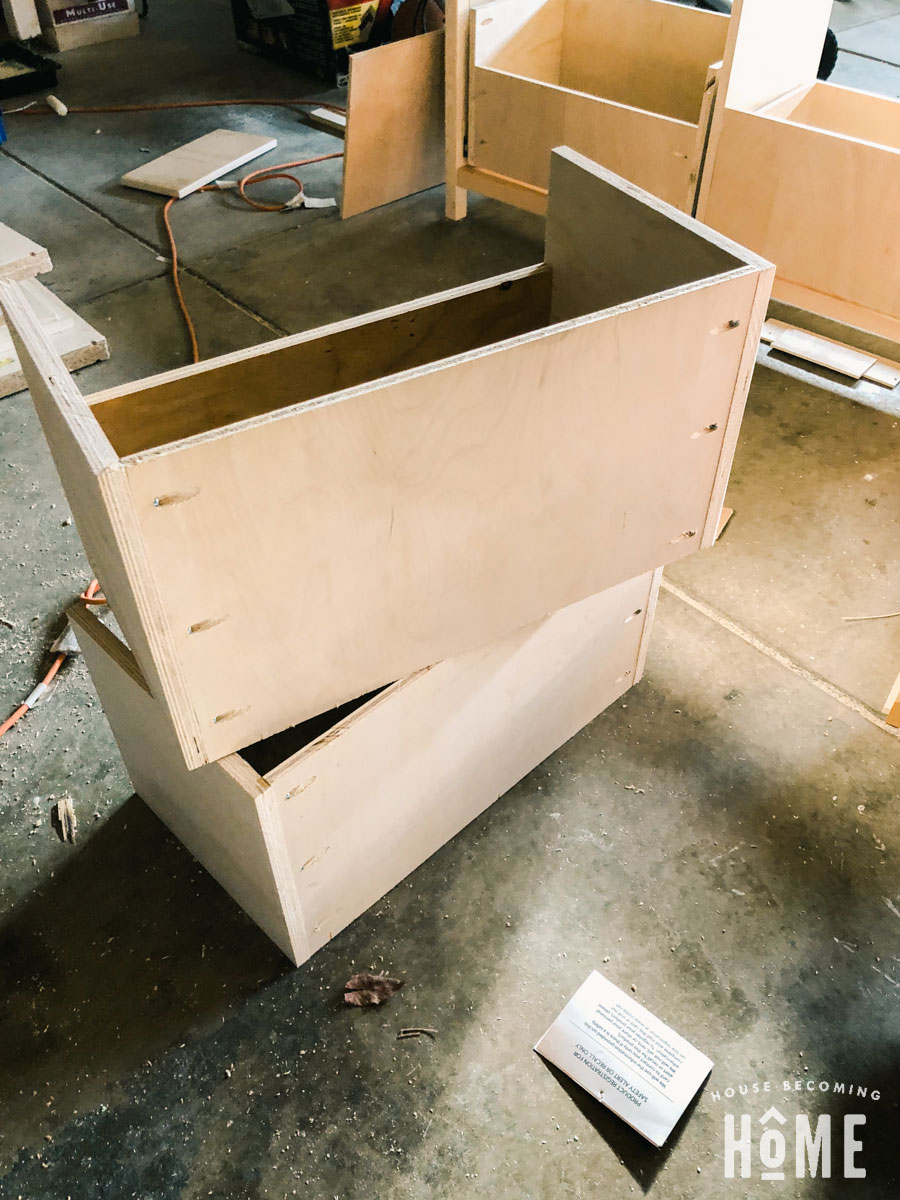
As I finished the drawer boxes I added drawer slides to the inside of the shoe cabinet, then to the drawer box, slid the drawer into place, then screwed on drawer fronts.
*Tip* To maintain an even 1/4″ gap around all drawer fronts, place a scrap piece of 1/4″ plywood between the drawer fronts as you screw into place
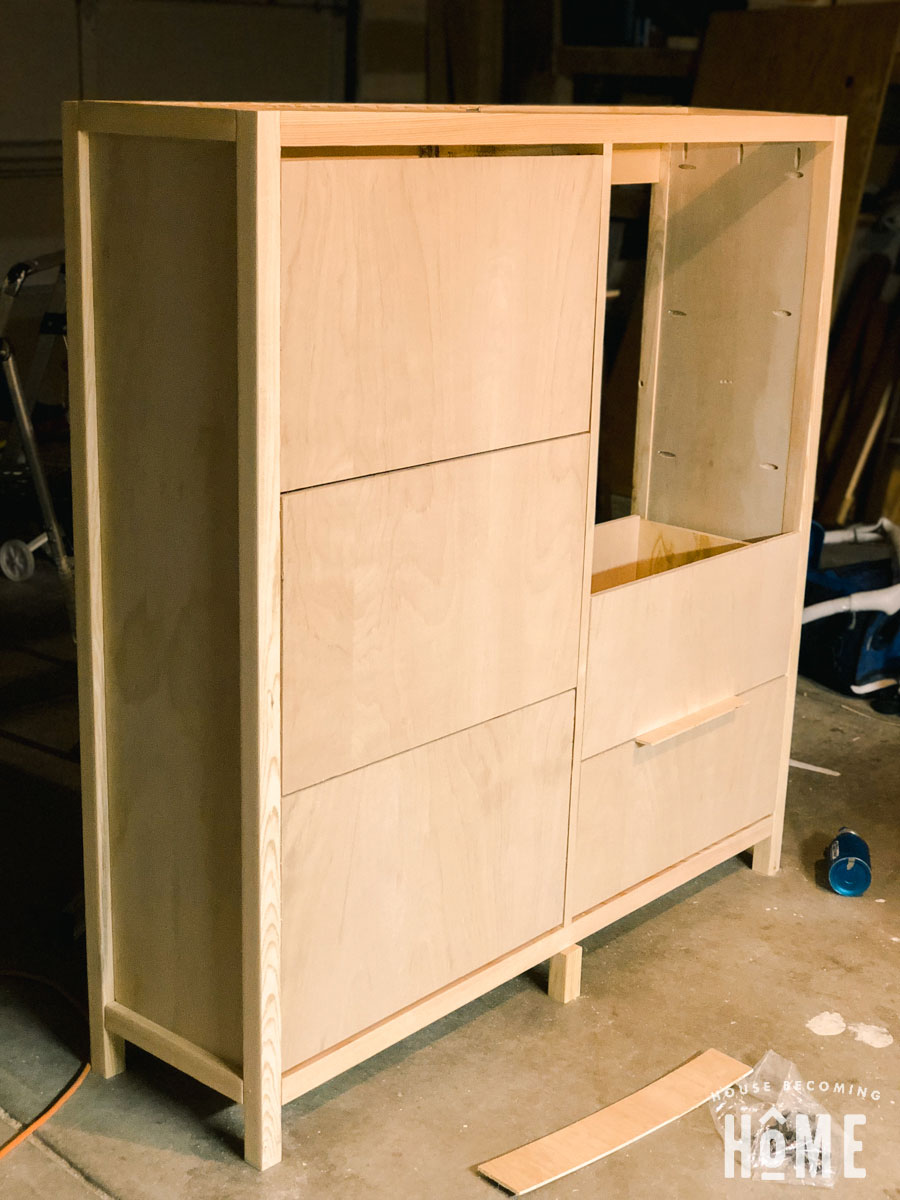
Before attaching drawer bottoms, I used my router with a 1/4″ straight bit to cut grooves into the middle of the drawers. I clamped down a piece of scrap wood to get the router bit in the spot I wanted the groove cut. You could also make the grooves using a stacked dado blade on your table saw (if you go the table saw route, you’ll want to make the grooves before putting the drawers together).
Next, cut 1/4″ material (plywood or hardboard) to fit snugly in the grooves of the drawers–this will divide your drawer into two compartments.
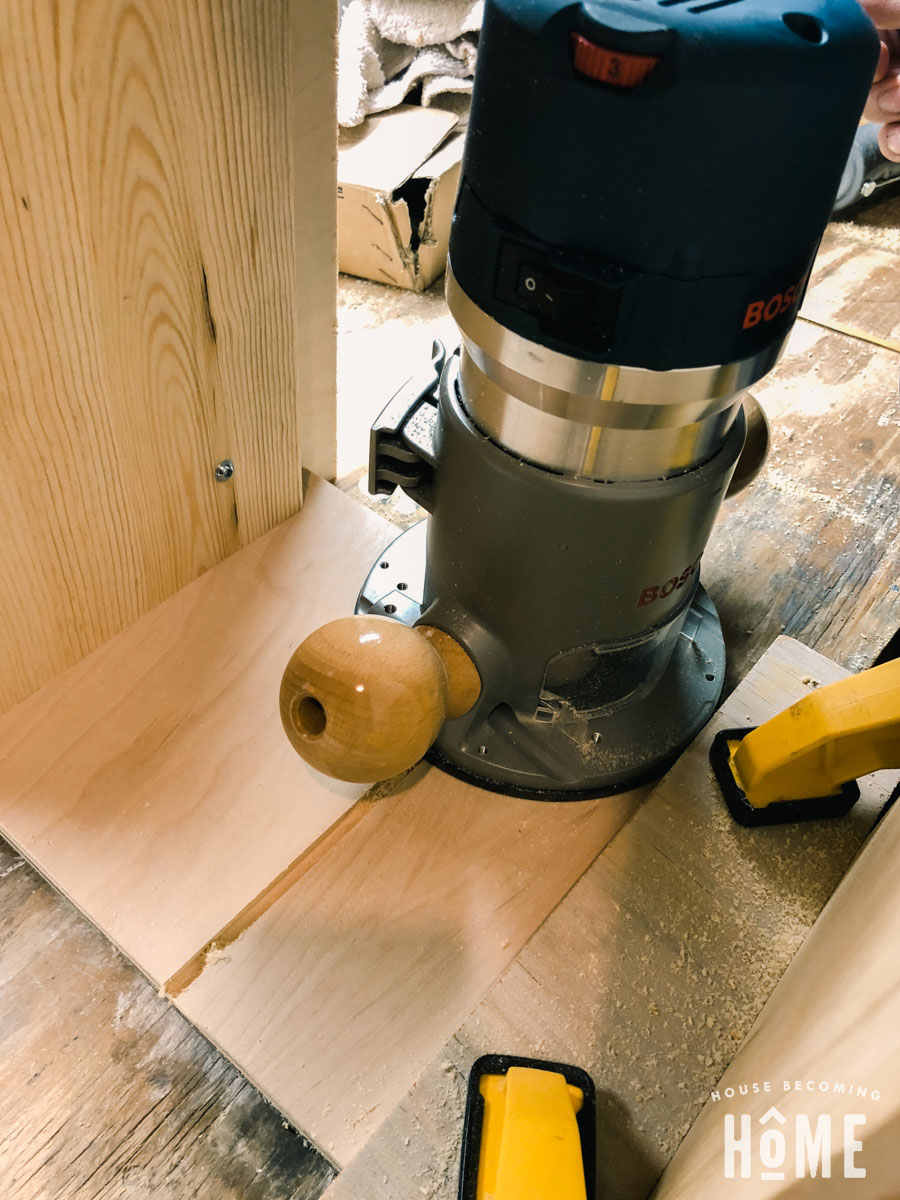
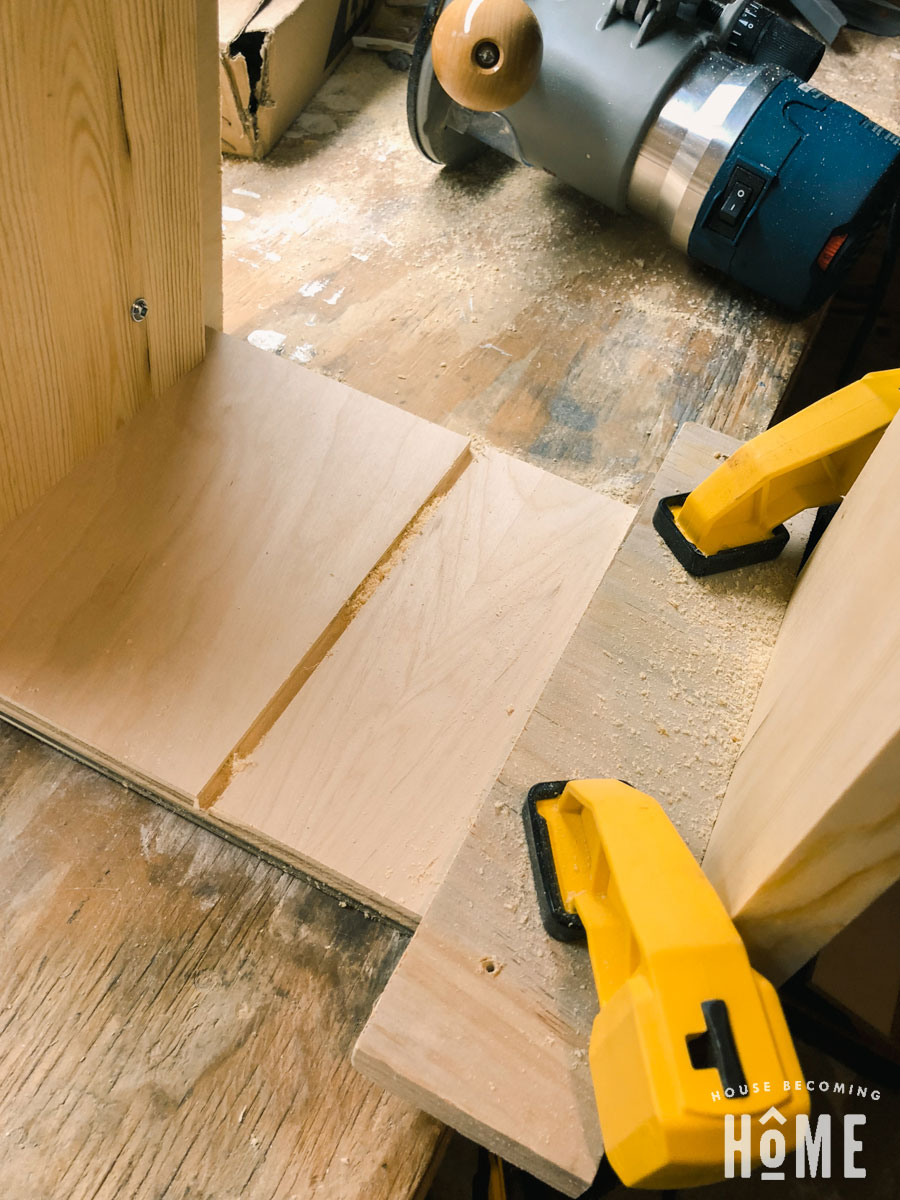
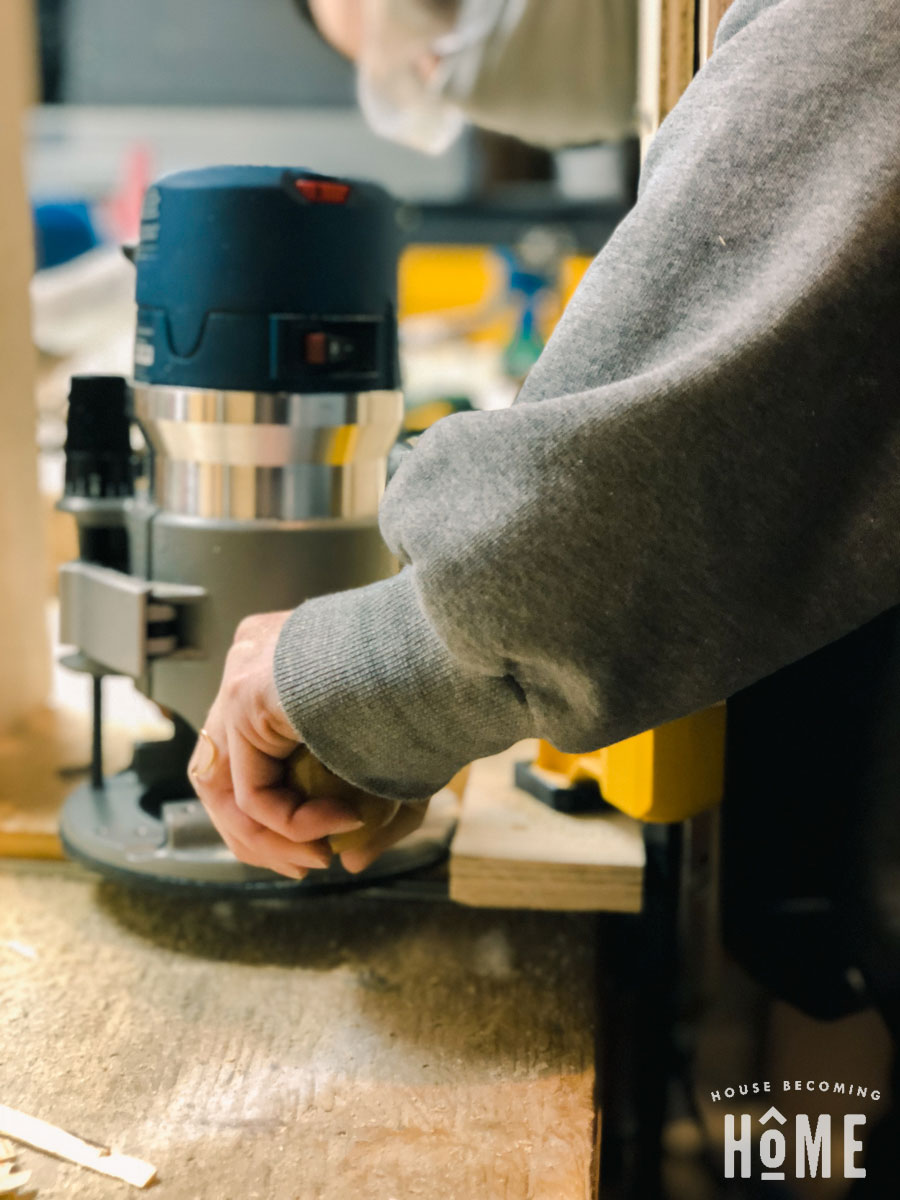
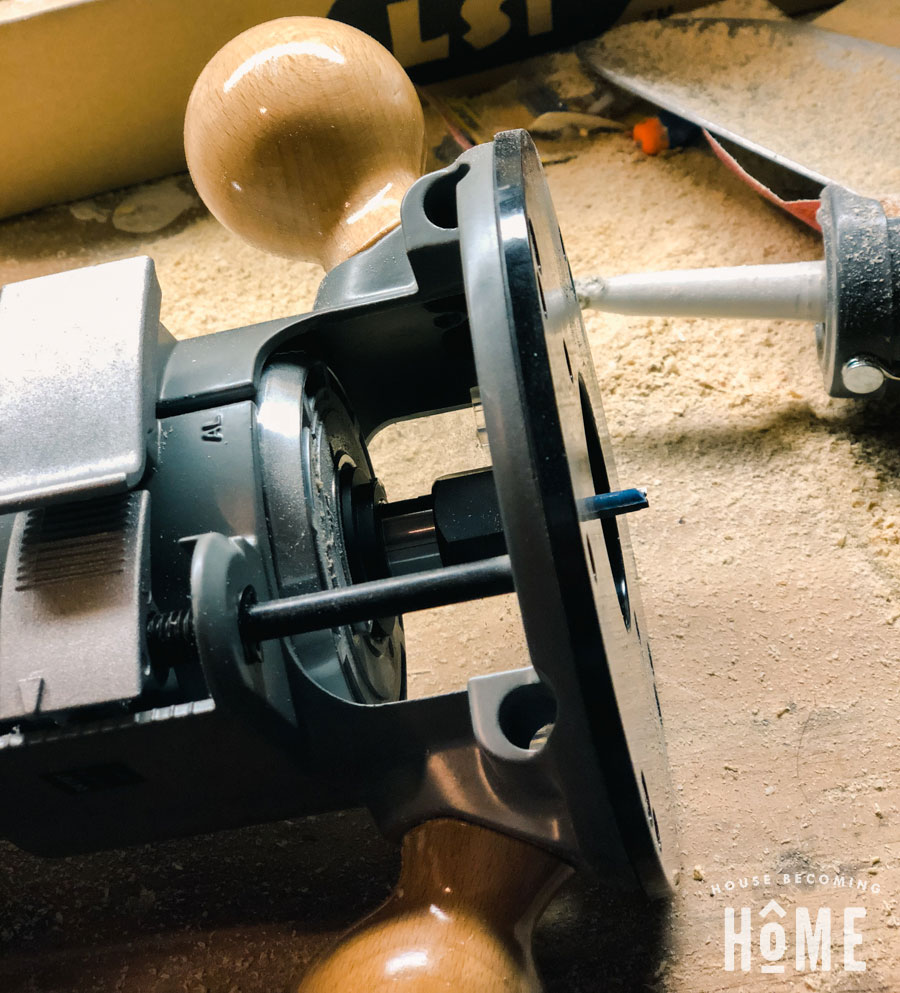
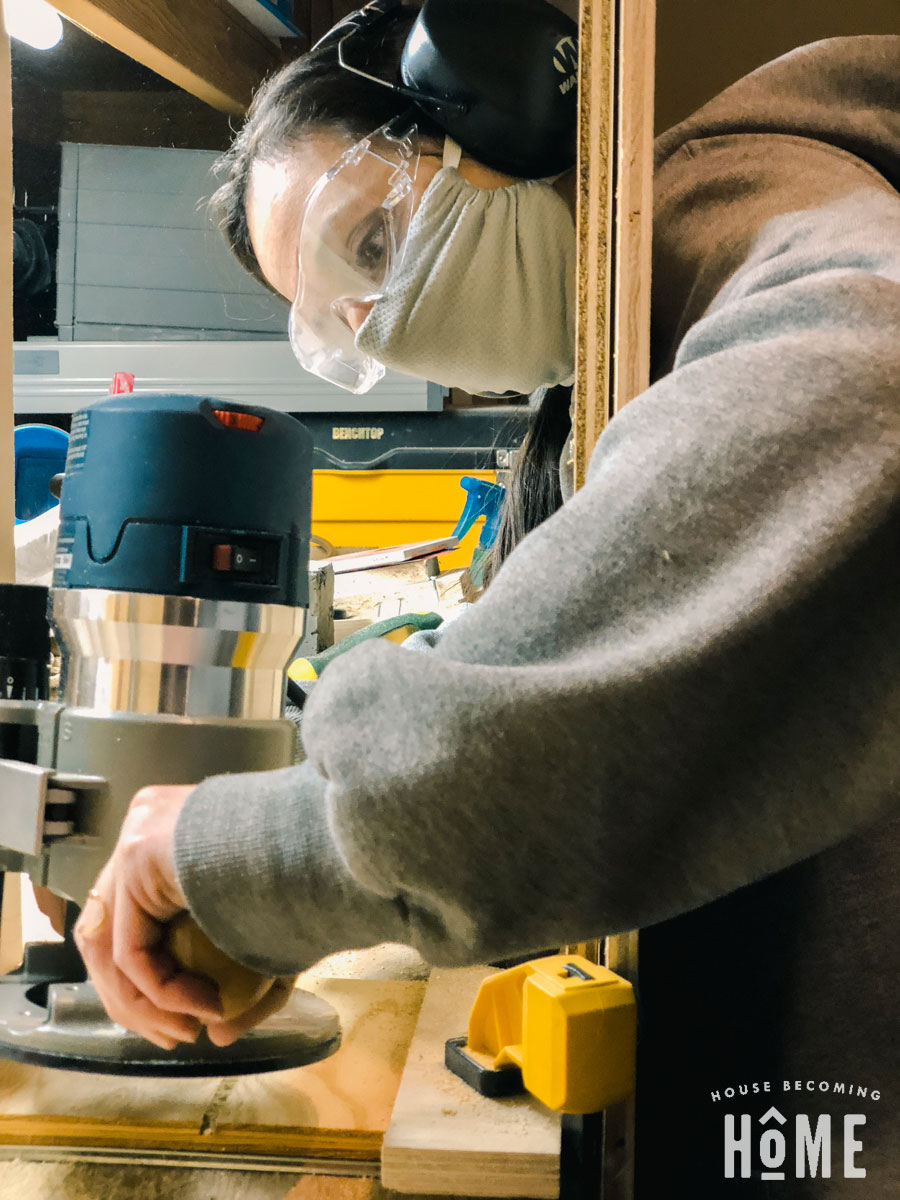
Cut 1/4″ hardboard or plywood to be attached as the drawer bottom. Because these drawers will be holding shoes, I wanted to add a little protection to the bottom + something nice to look at. I used contact paper and a heavy duty plastic shelf liner.
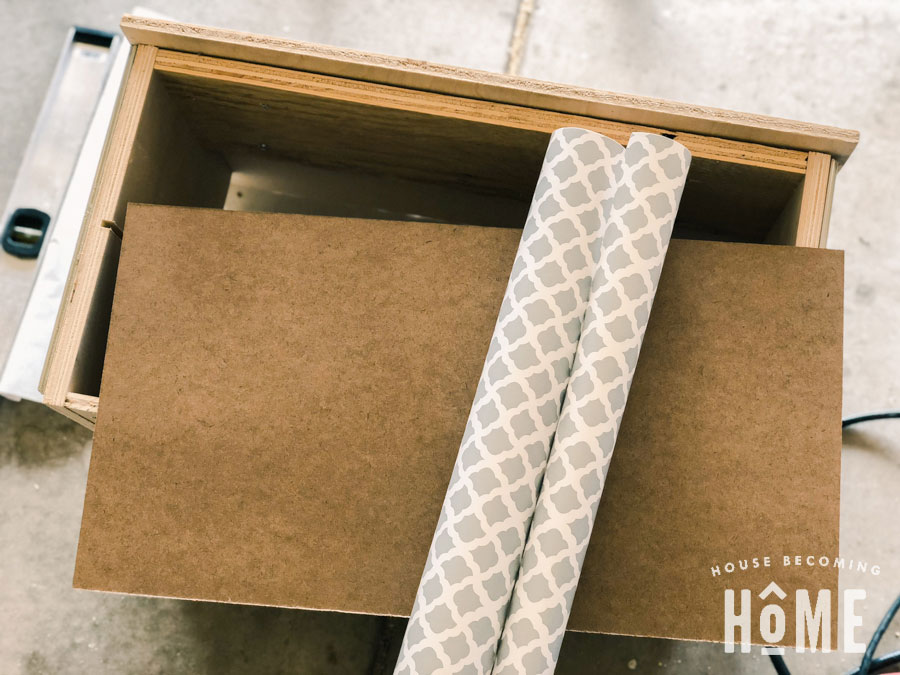
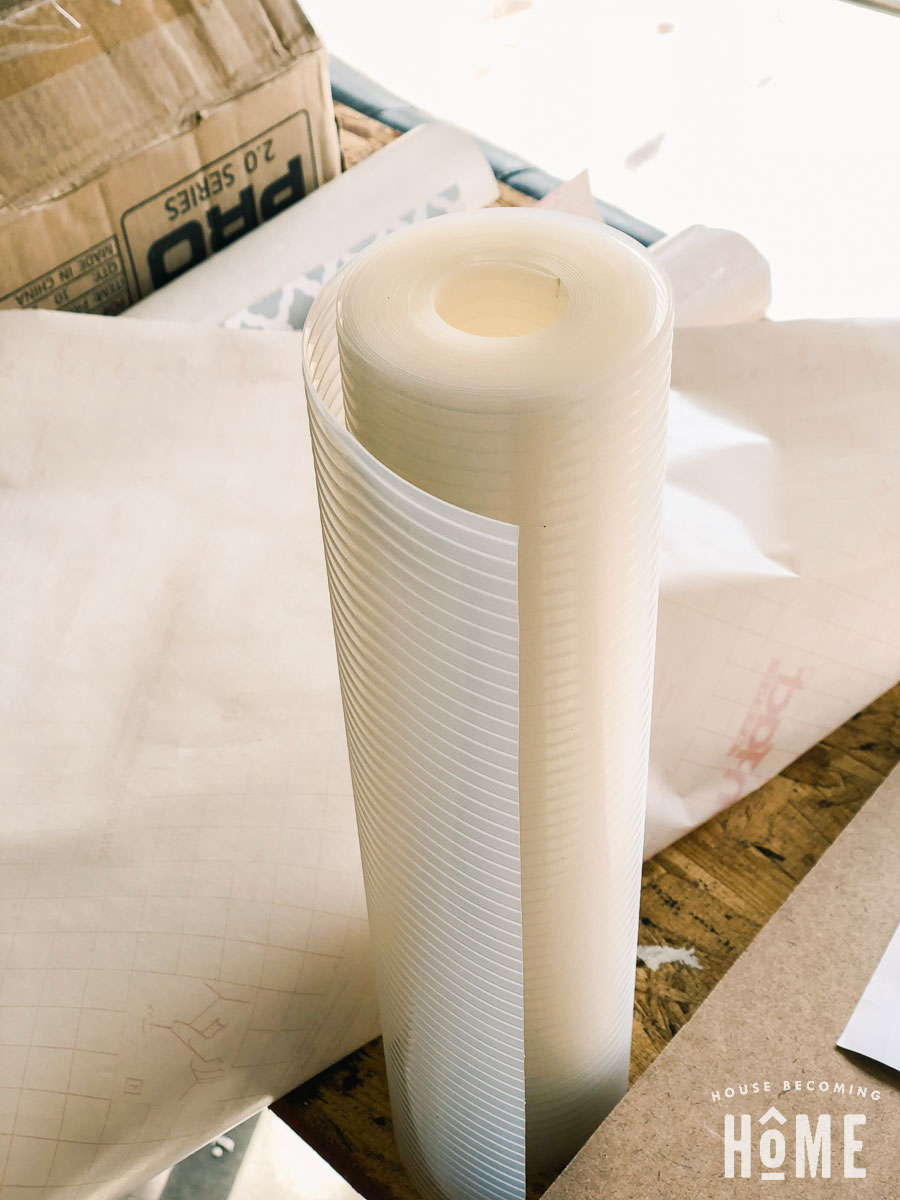
I put on a layer of contact paper, then the plastic shelf liner, then flipped the whole thing over onto the bottom of the drawer. Staple in place.
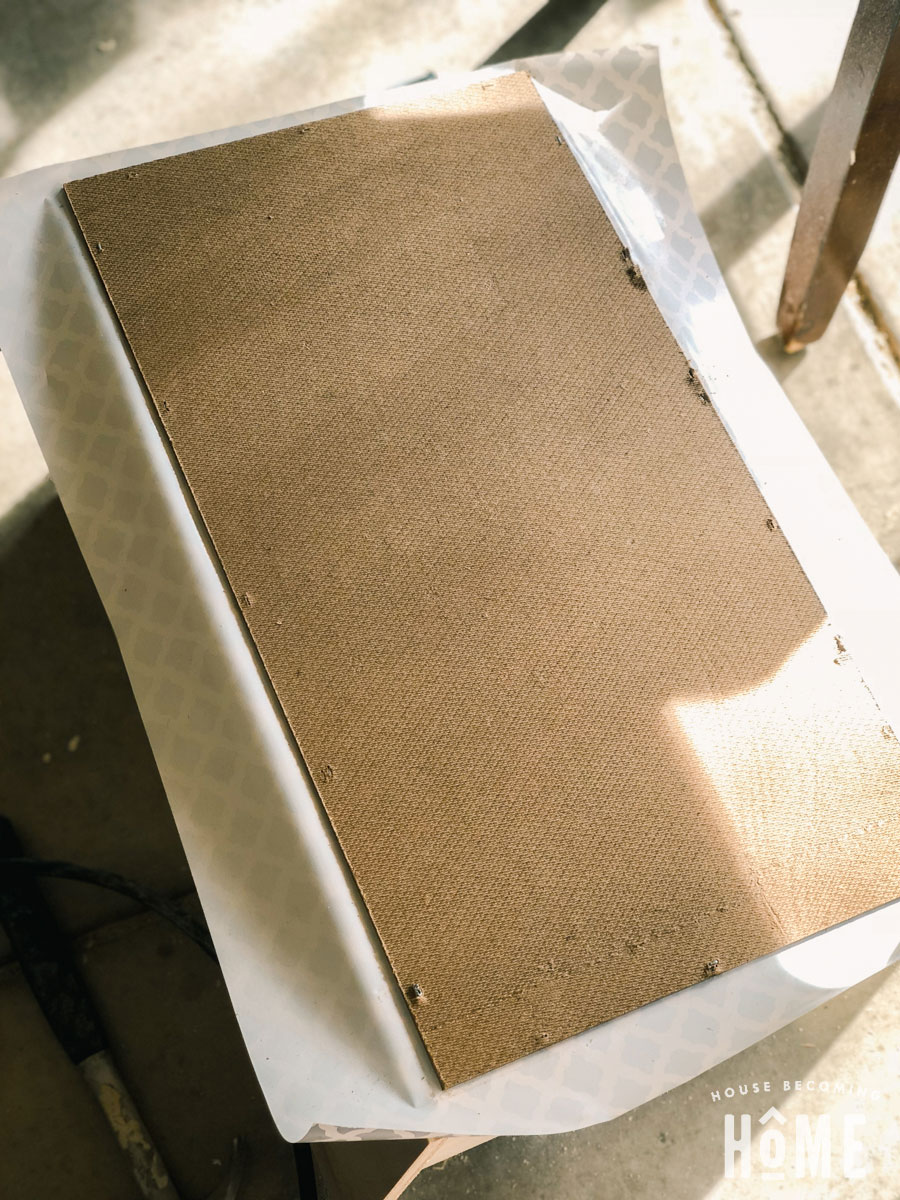
Trim off any extra contact paper/shelf liner with a utility knife.
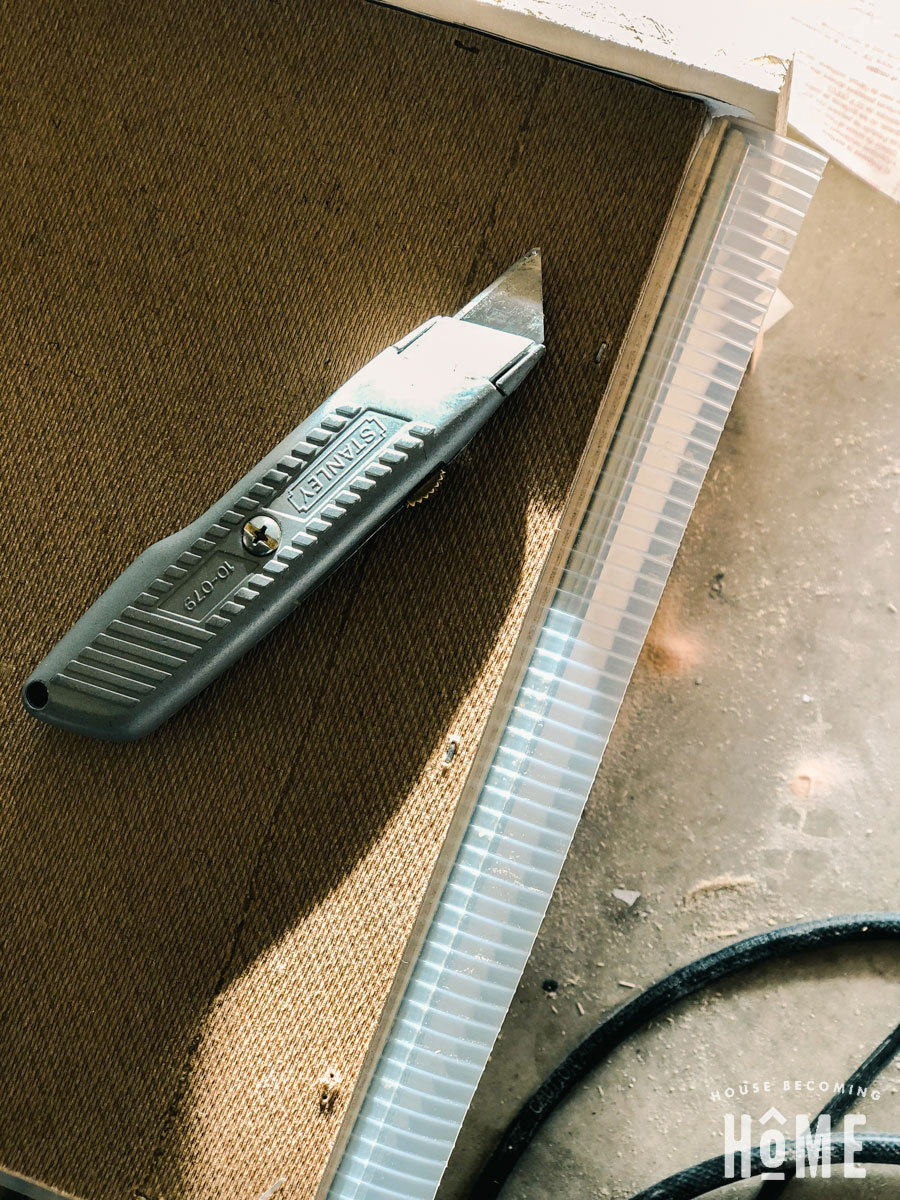
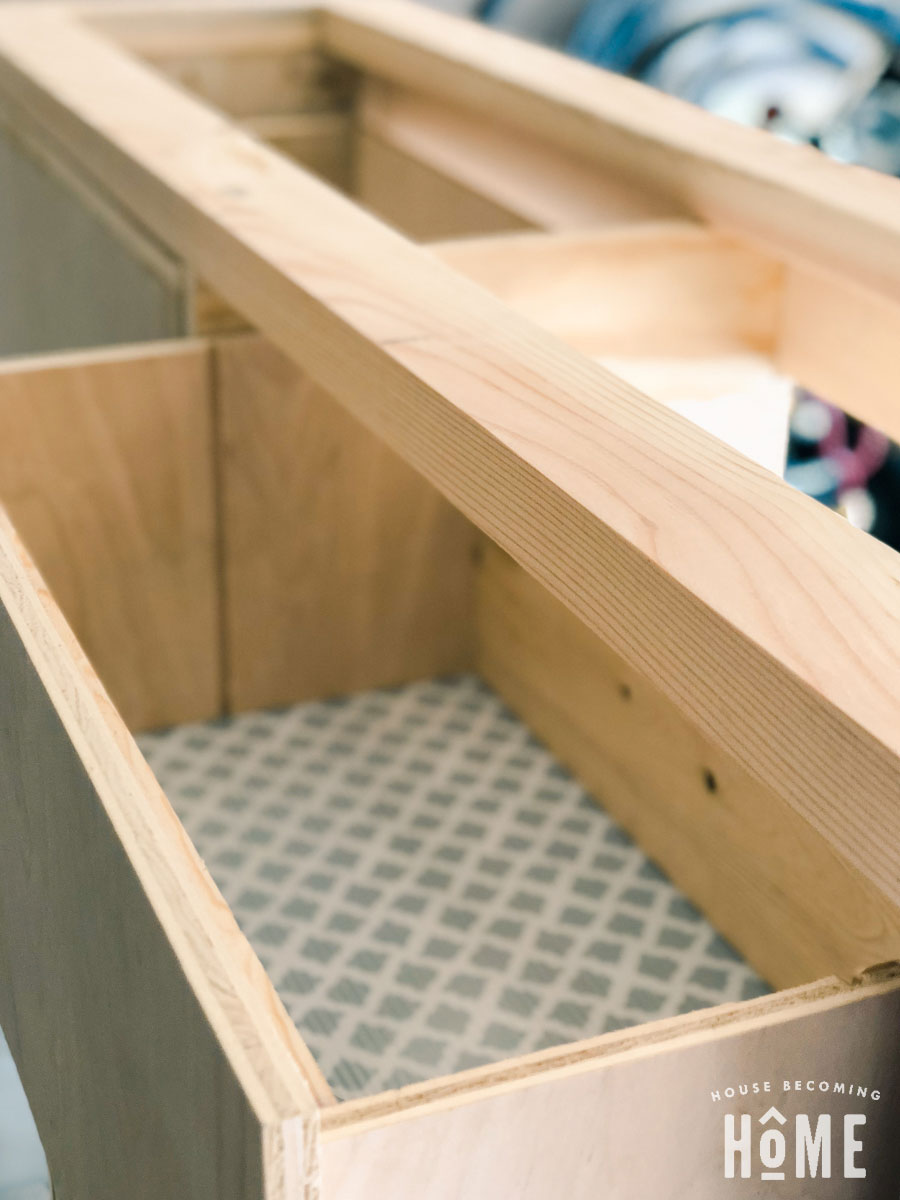
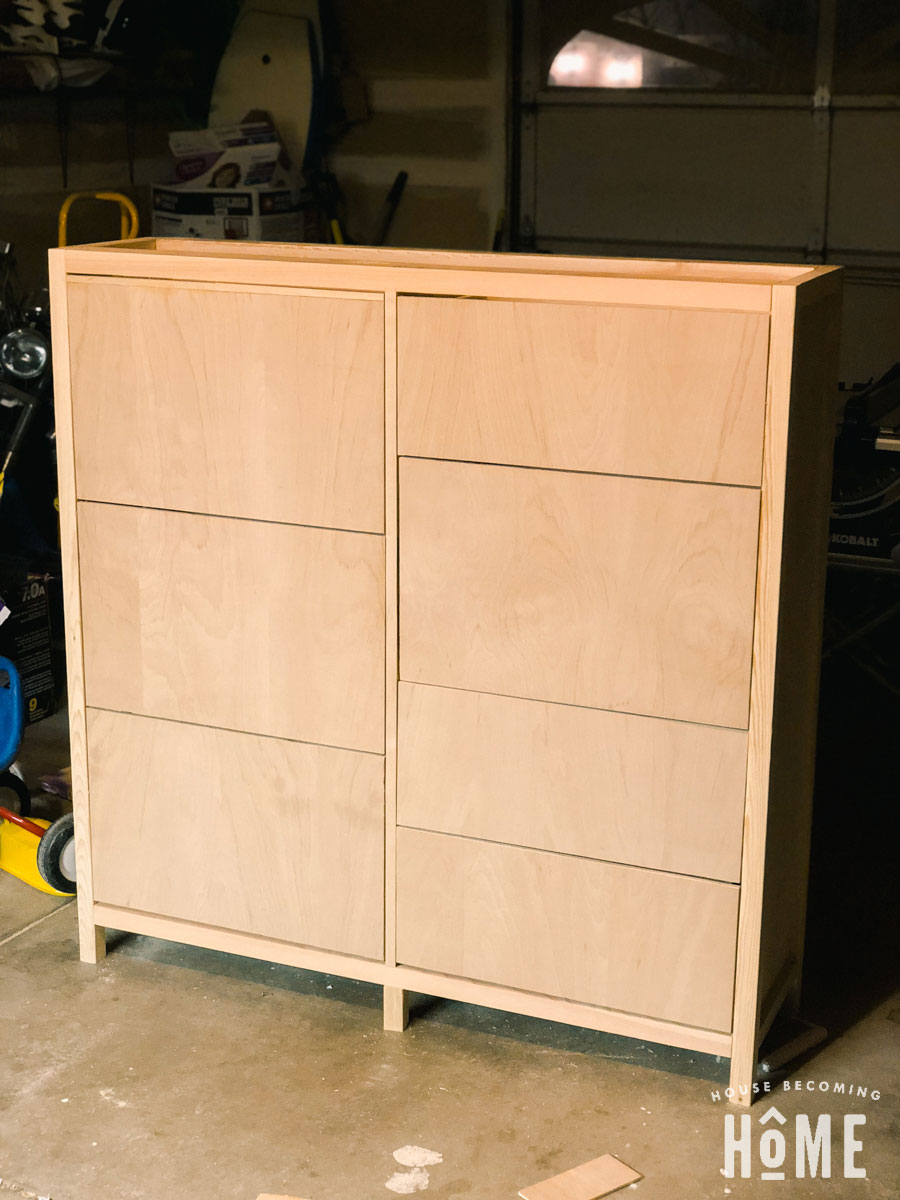
Step 4 : Attach Shoe Cabinet Top, then paint or stain
The simple way to do this would be to cut a piece of plywood to size, then add veneer edging. But I had lots of 1x material that I had picked up for 80% off in the unwanted bins at Home Depot. And I didn’t want to have to buy an entire new 4×8′ sheet of plywood just for the top. So I joined my 1x material together with wood glue and pocket holes to make a top.
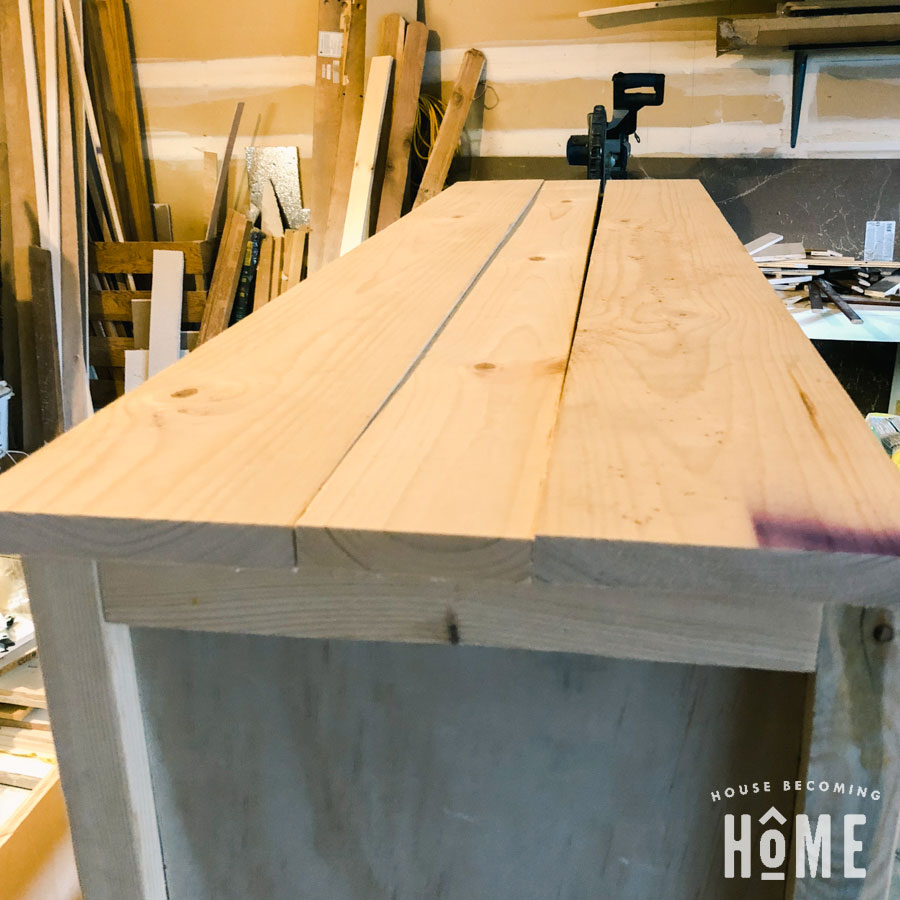
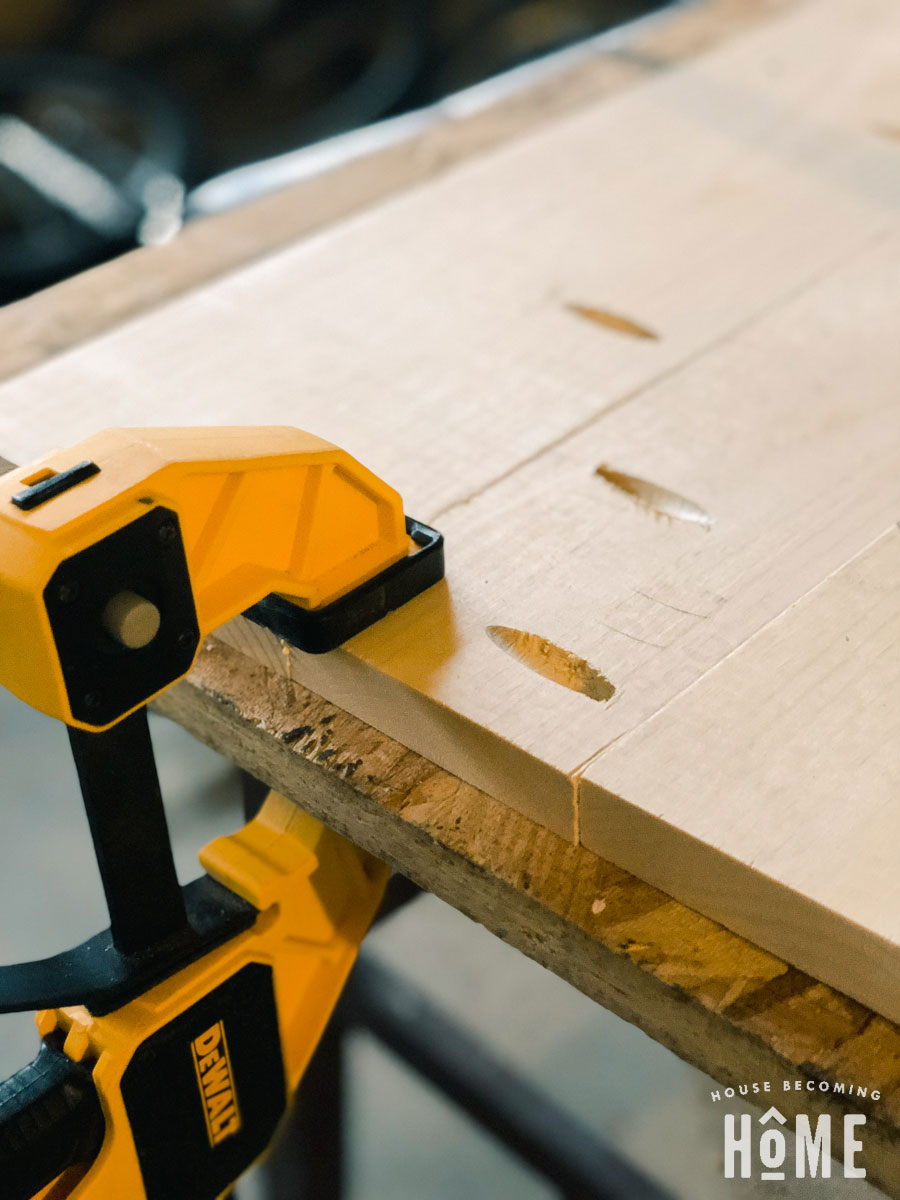
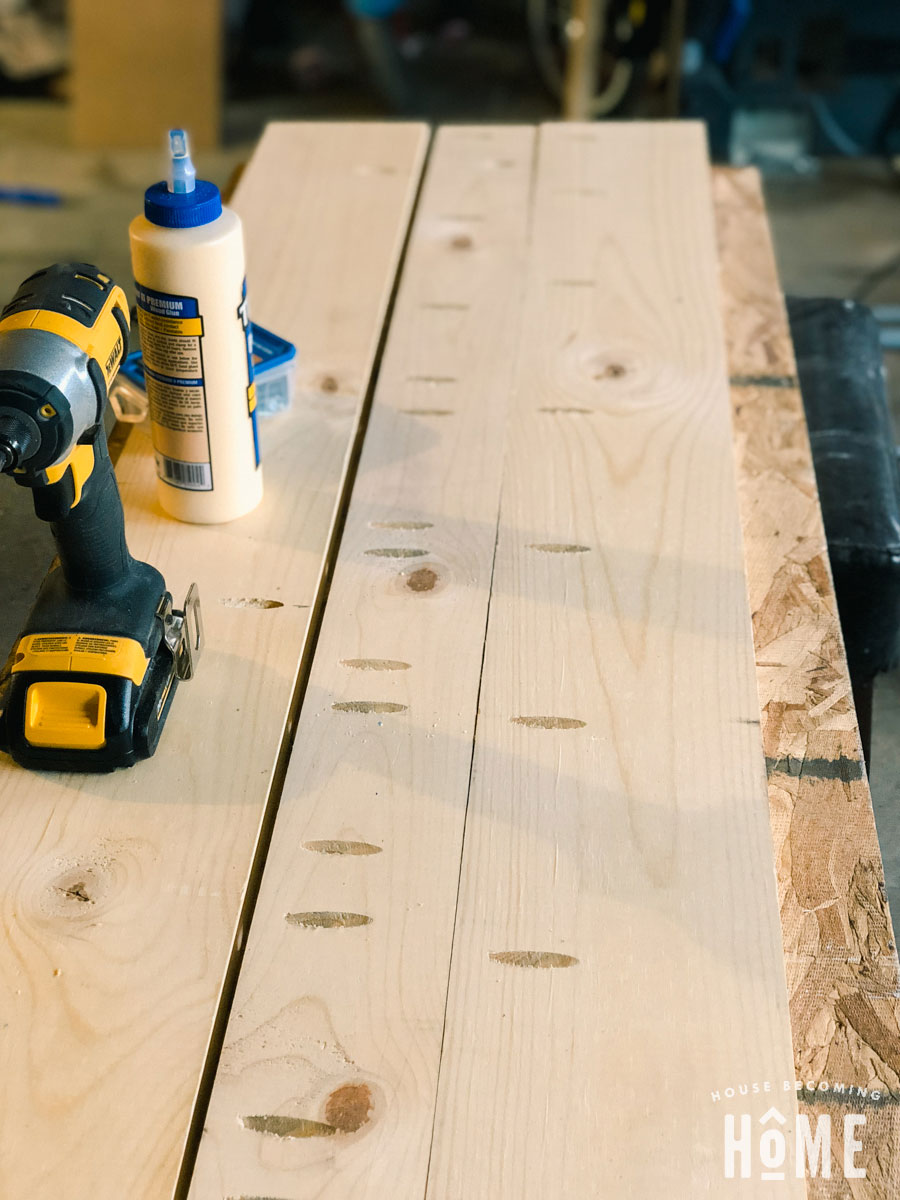


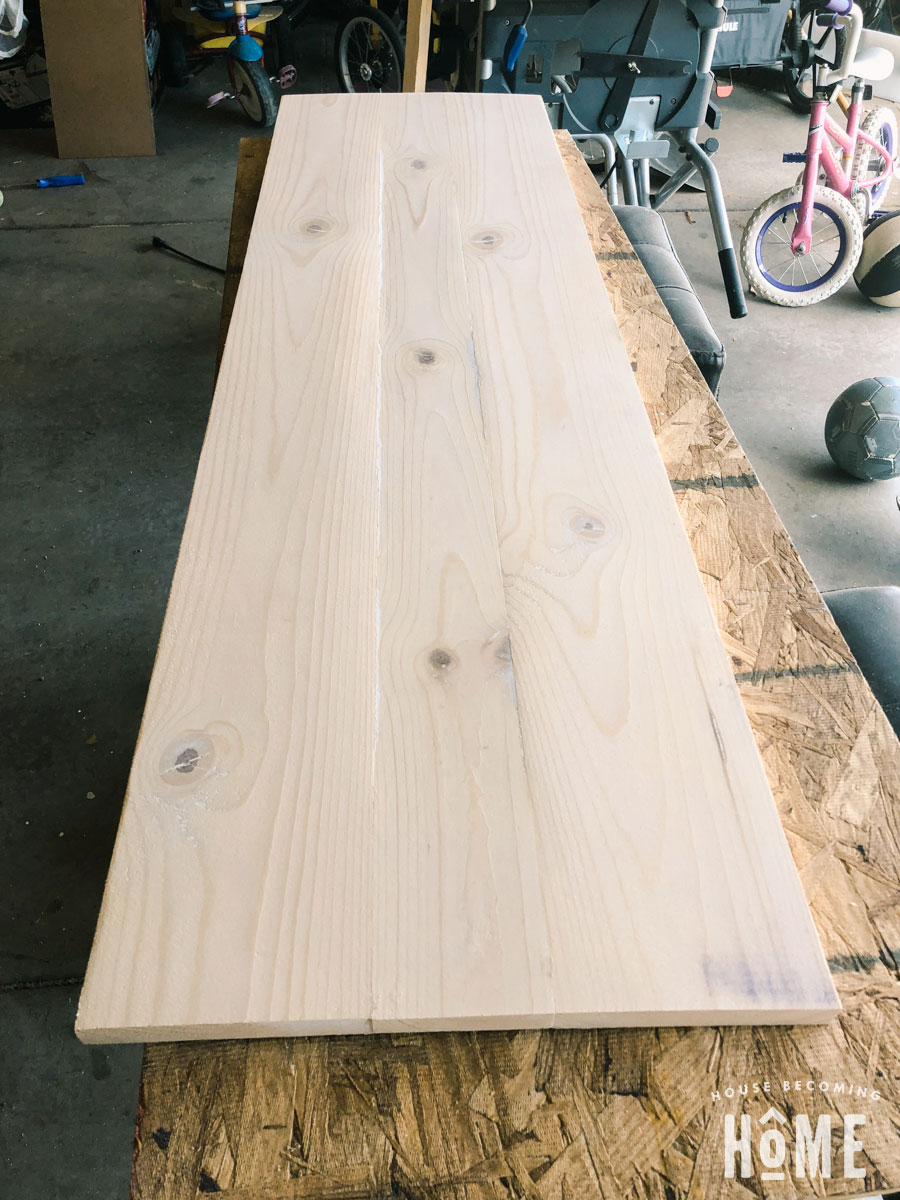
The top extends beyond the shoe cabinet by about 1″ on the front and sides, but is flush to the back side so that I can push it right up against the wall without any gap.
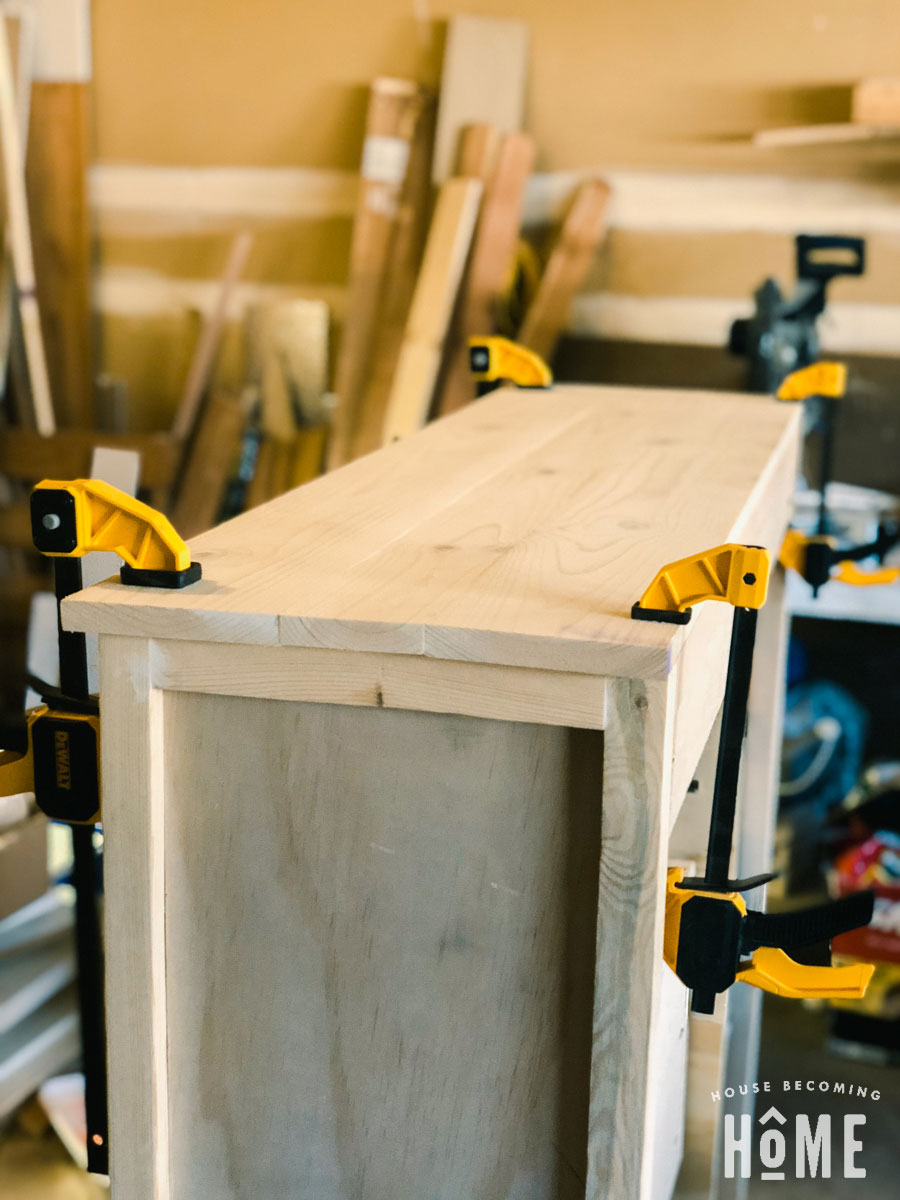
Screw the top into place from underneath–up through the halved 2×6 top supports.
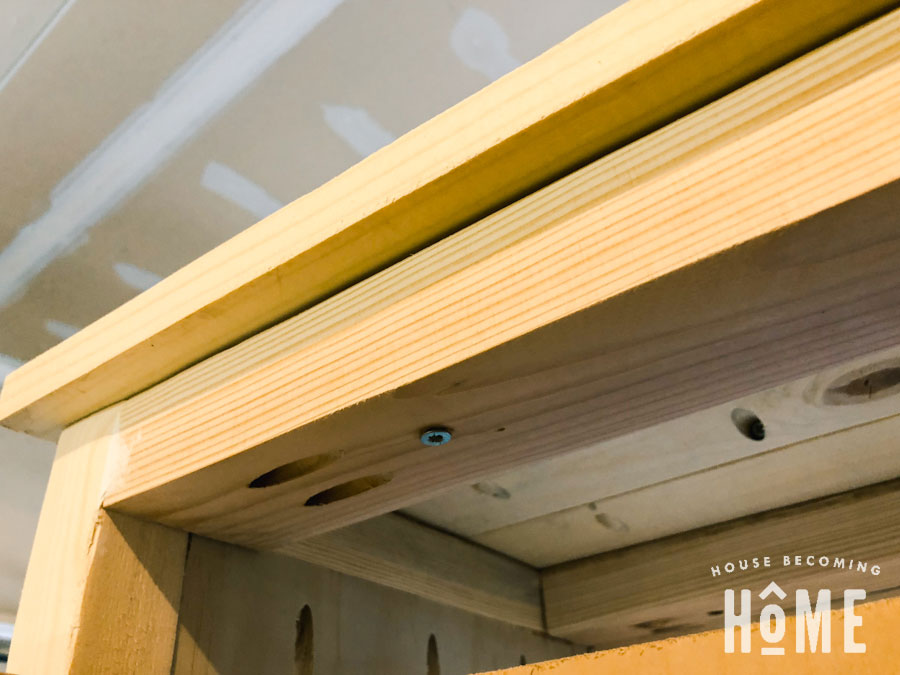
There it is, almost finished. I went into this project planning on painting it, but when I made it to this stage I was imagining how nice it might look stained. But I made a few mistakes along the way that had to be covered up with paint . . .
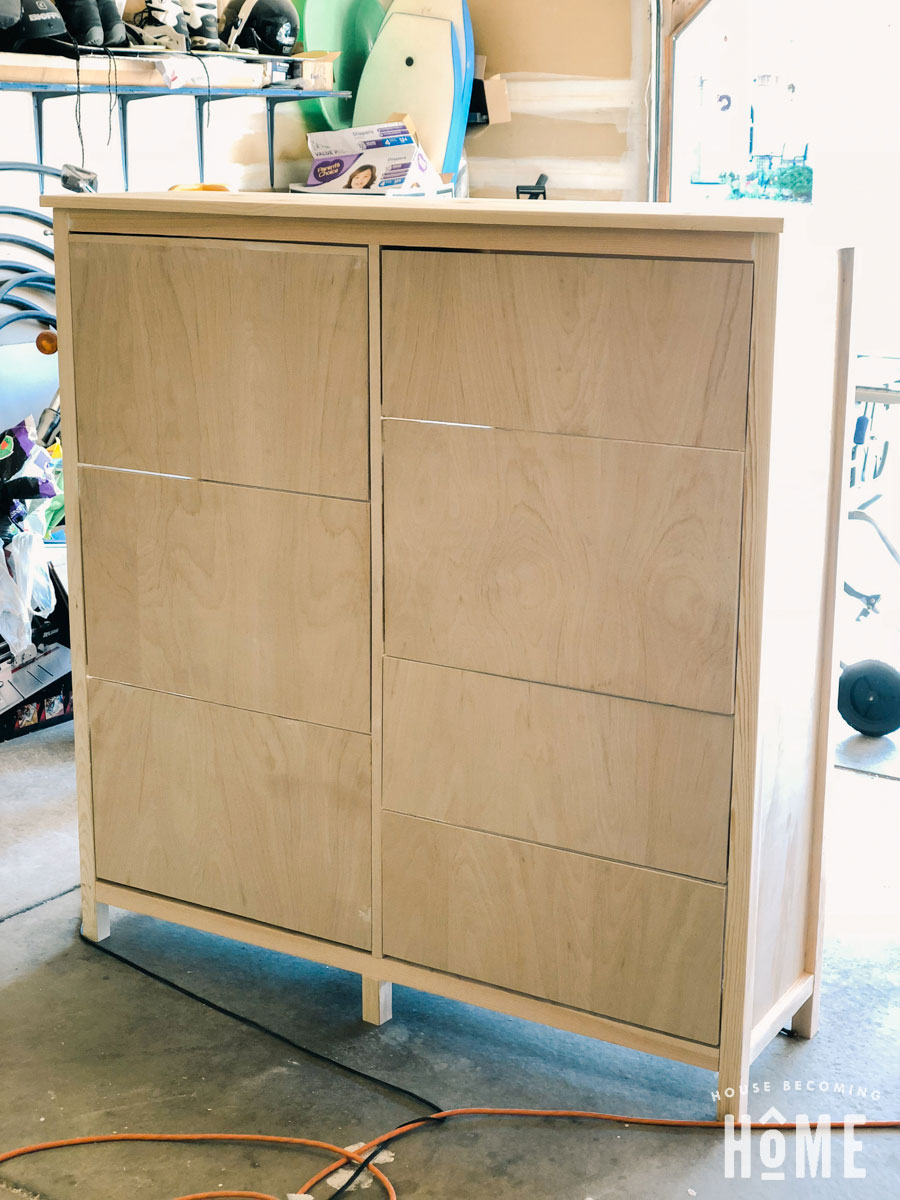
Step 5 : Finishing Touches
I primed, then painted my cabinet, then sealed with polyurethane. Determine placement of drawer knobs or pulls, drill holes and attach.
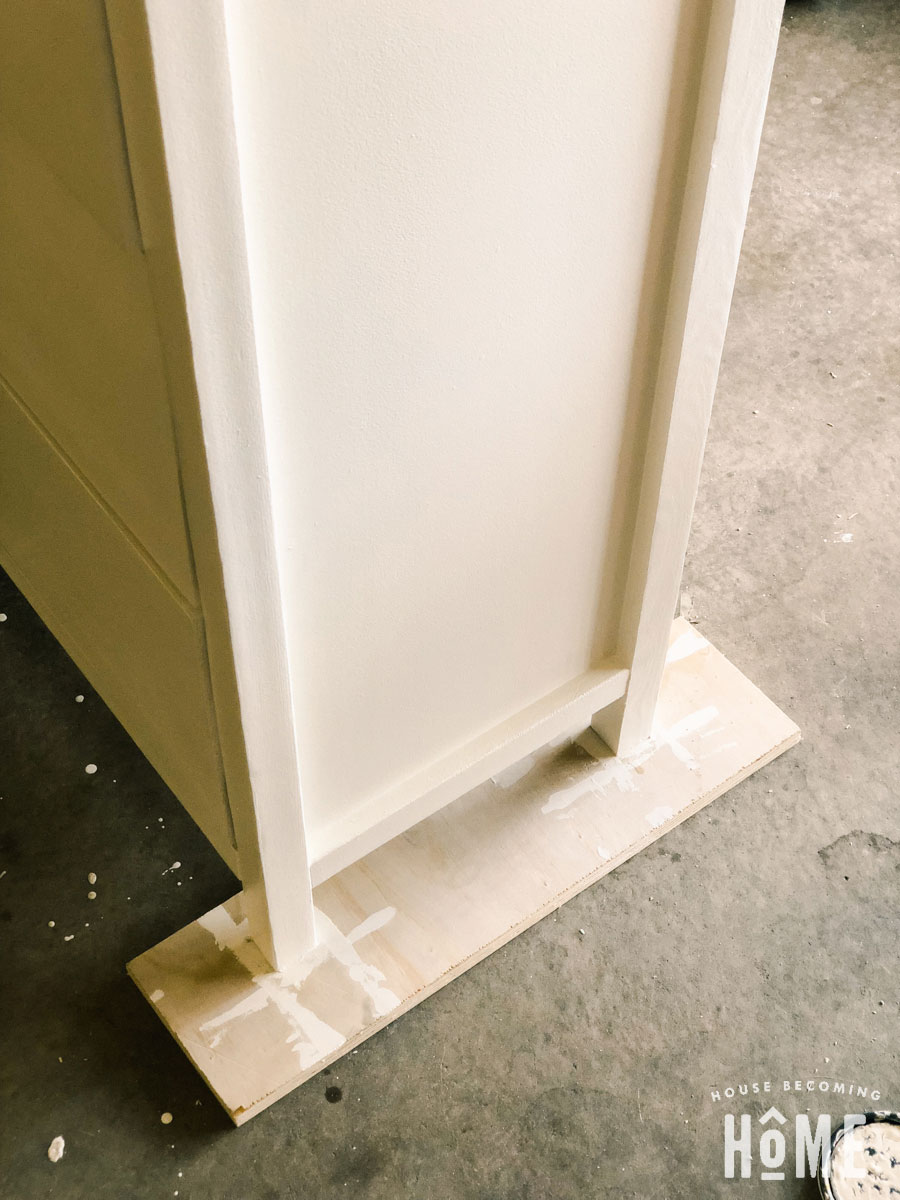
Remove the drawers of the shoe cabinet and place against the wall. Find the studs in the wall, then screw the shoe cabinet into place from the anti-topple piece at the back.
DIY Shoe Cabinet Complete – Ta-Dah!
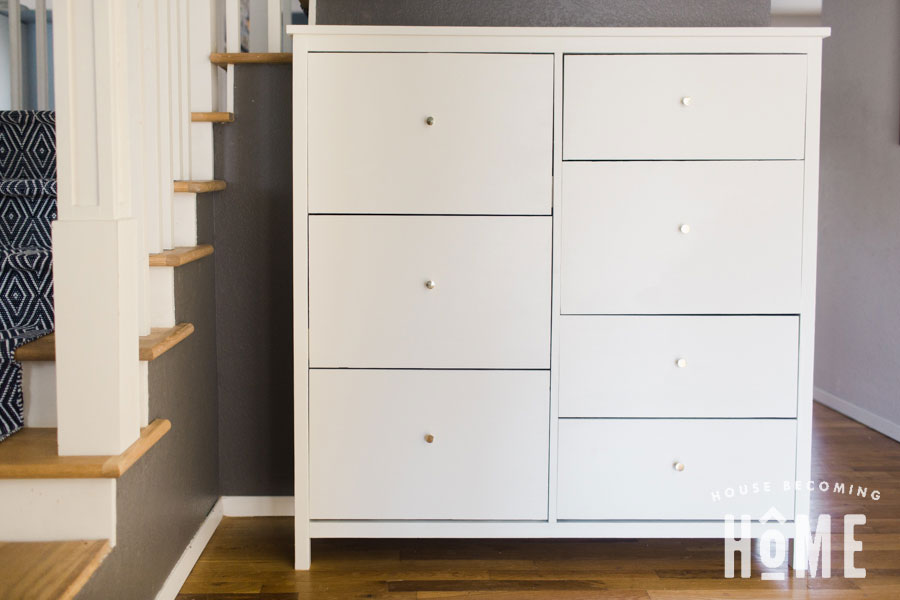
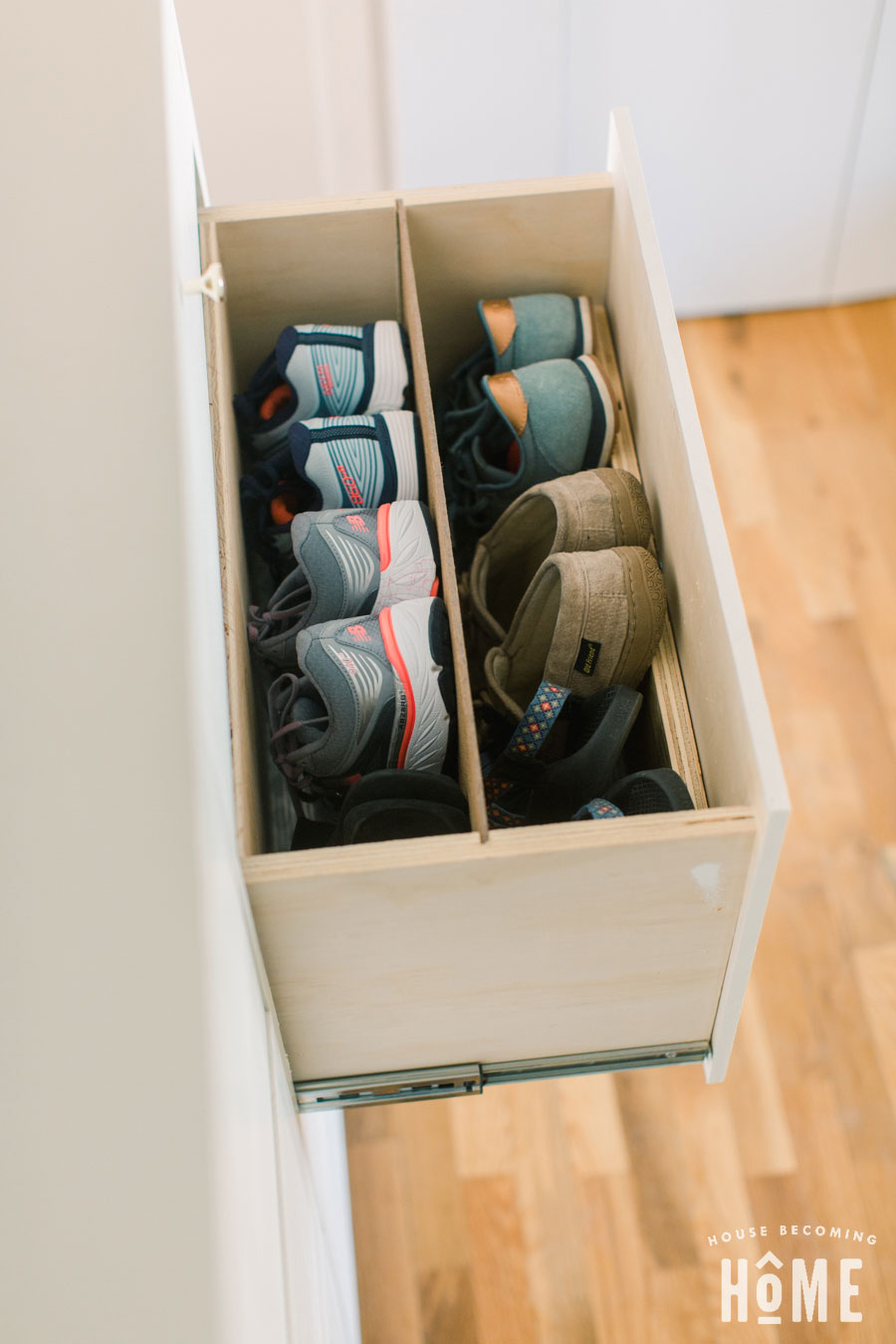
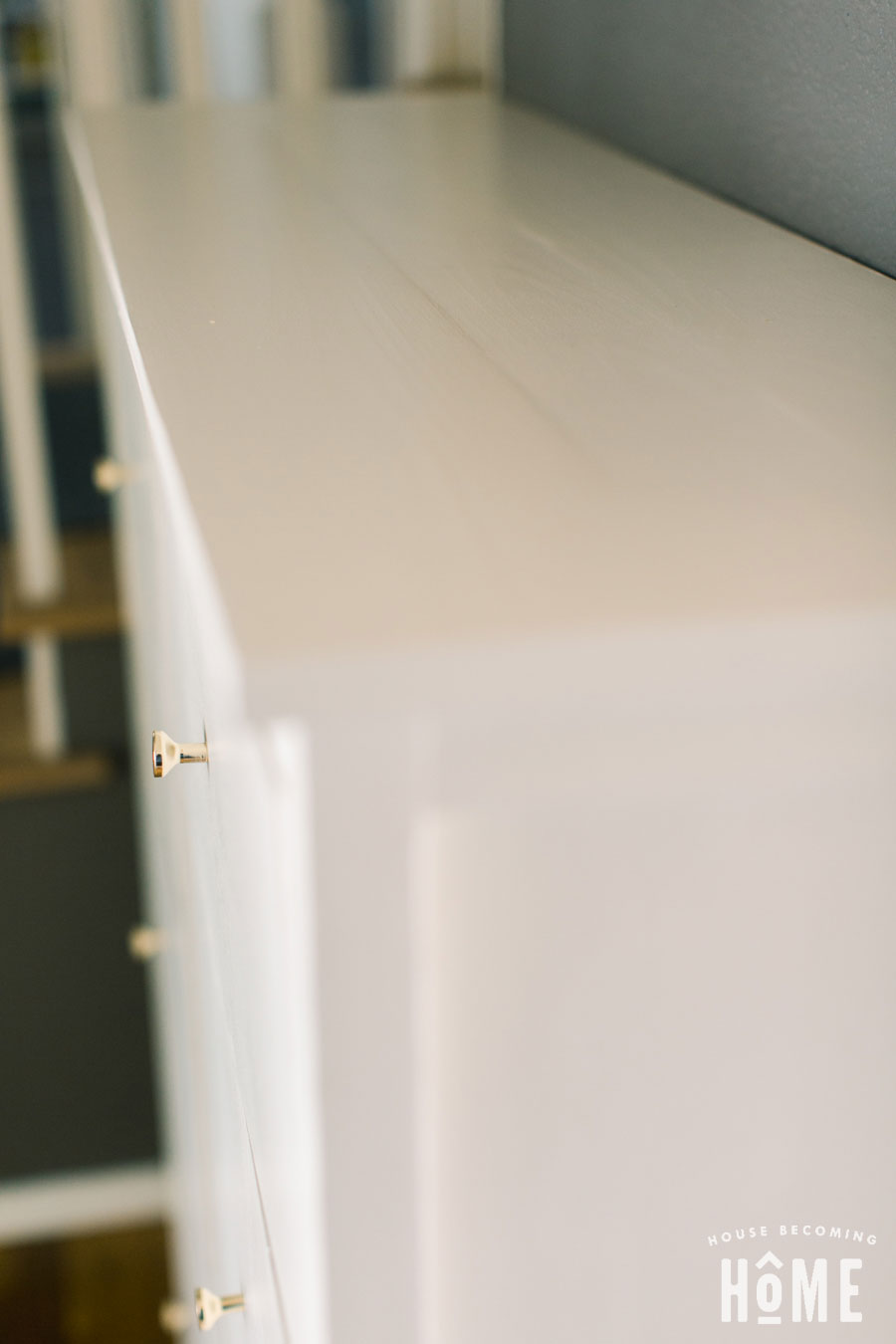
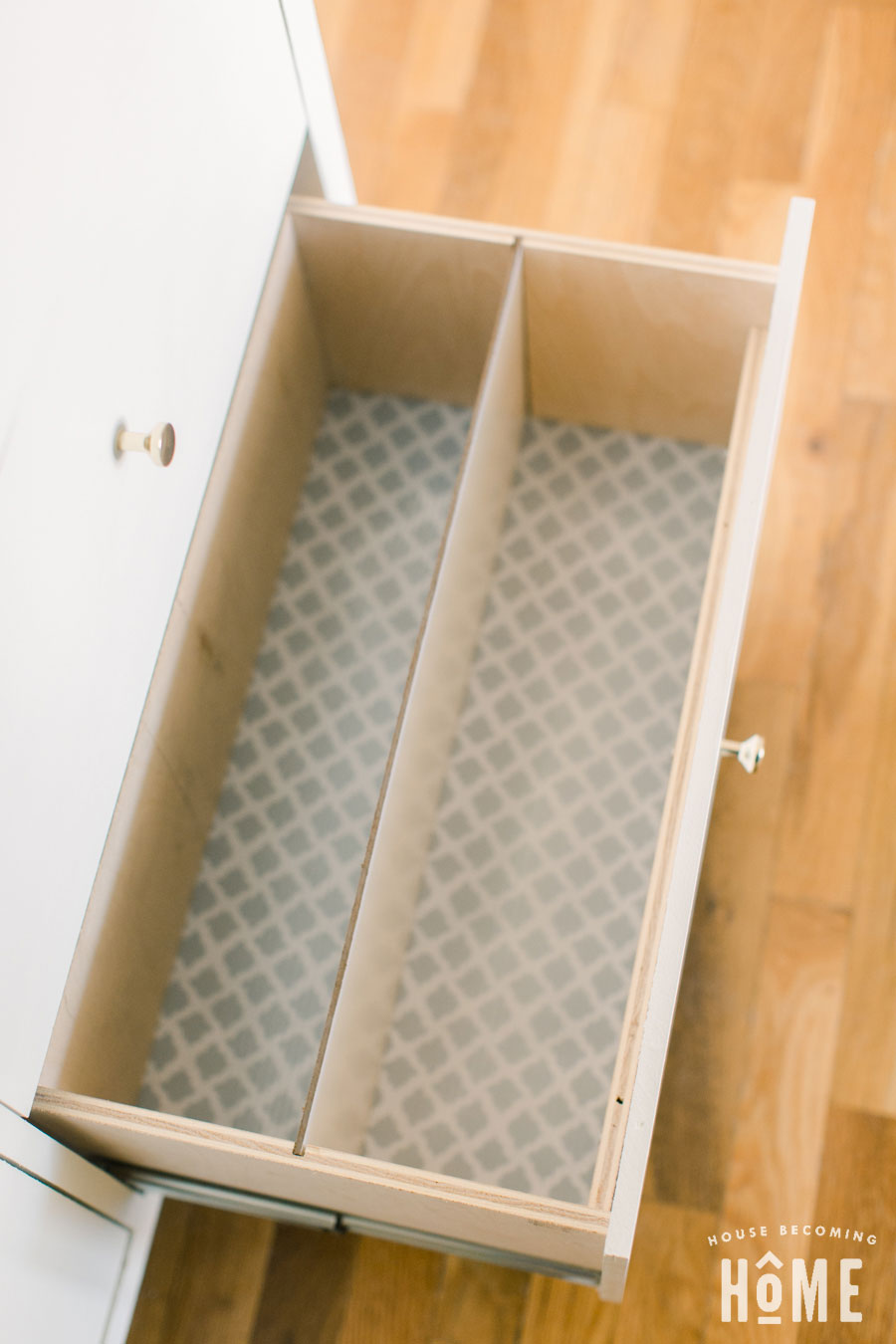
As you can see here, I planned the dimensions of the DIY shoe cabinet to maximize every last millimeter. Reason #5678 I LOVE DIY furniture!
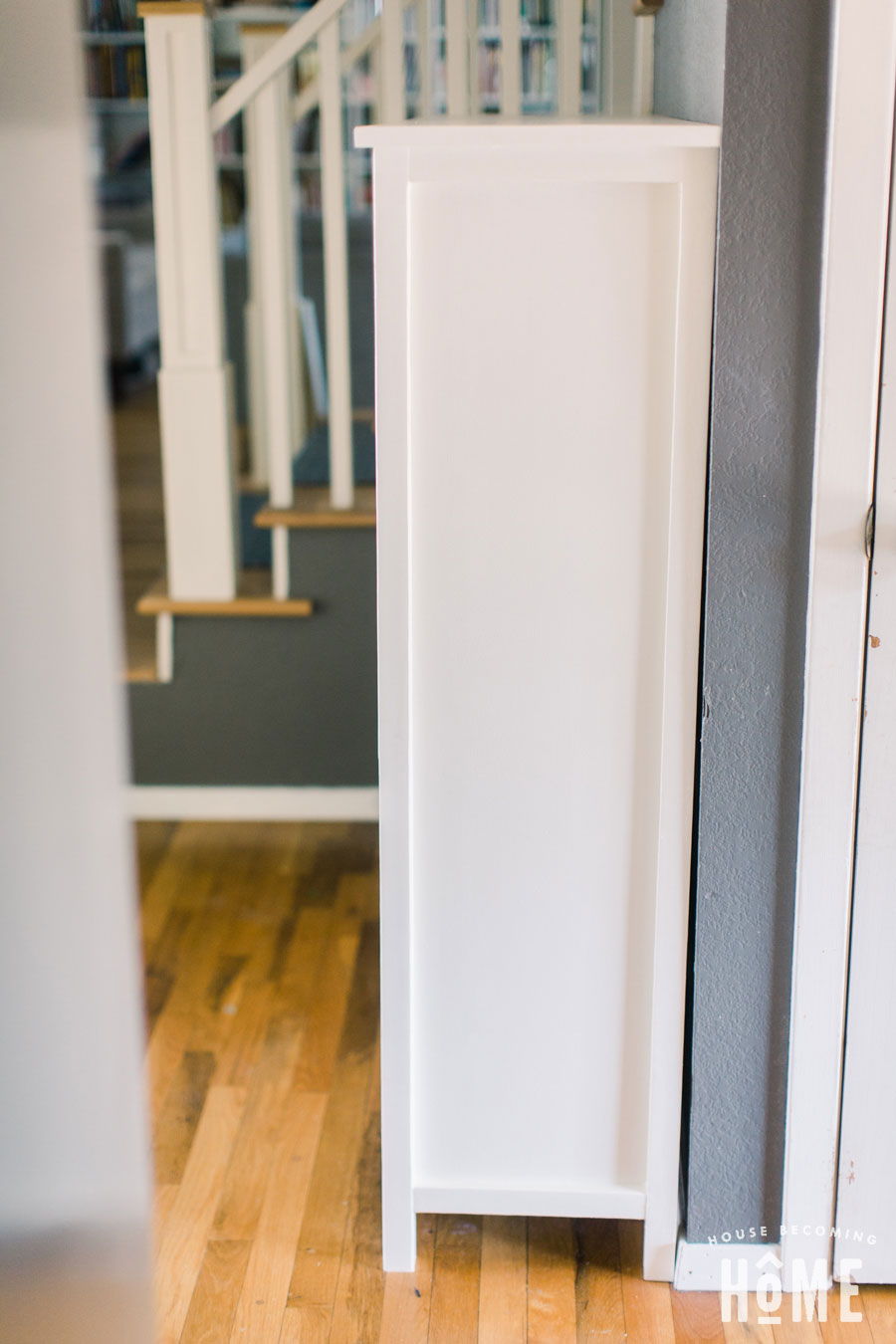
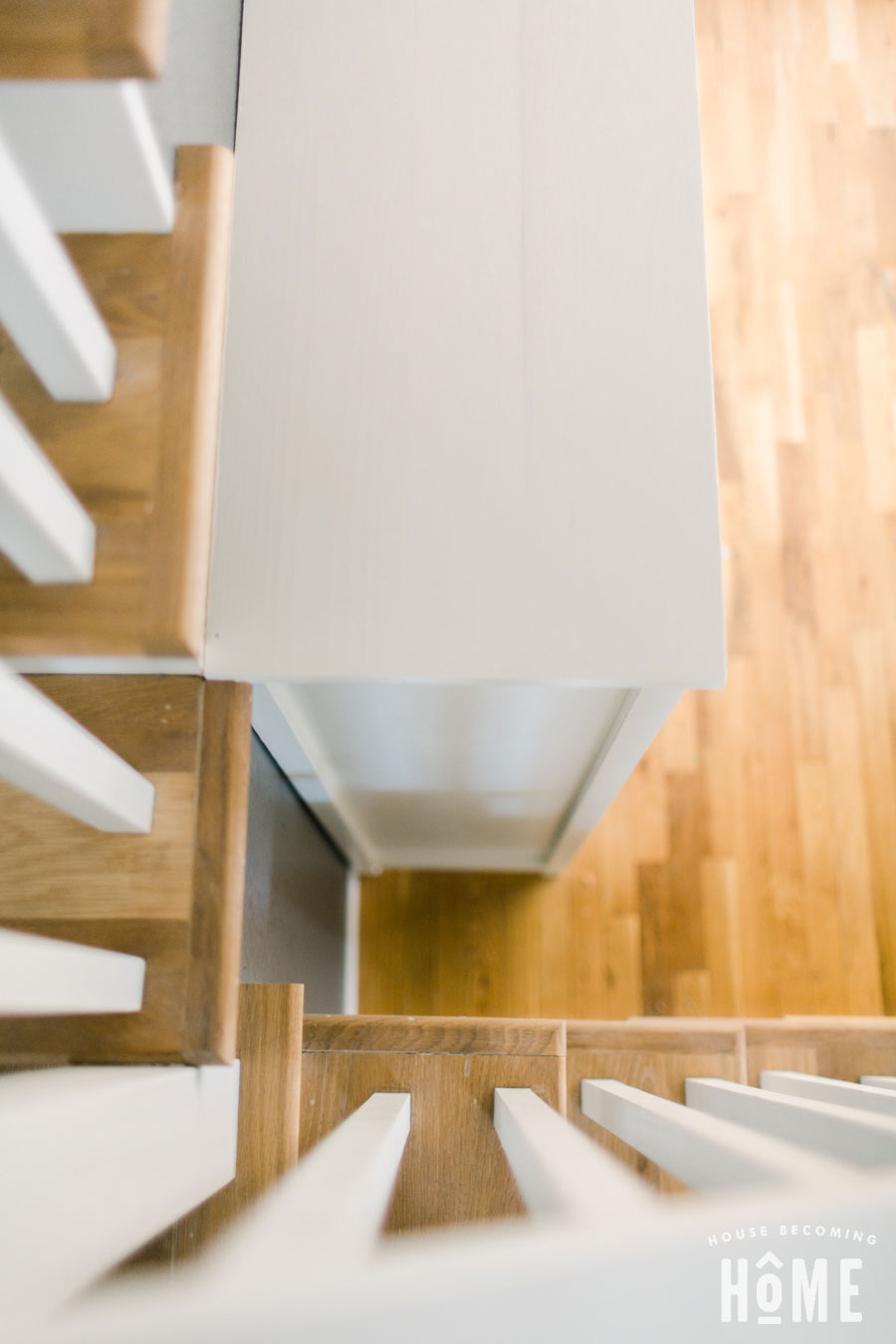
DIY Shoe Cabinet – You Can Build it Too
The wonderful thing about this shoe cabinet is that it was designed and built for our needs–to fill the space available in the entryway, to hold 6-8 pairs of shoes for each member of our family of six, drawers tall enough to fit the “big” people’s shoes, as well as drawers small and low enough to accomodate the “little” people’s shoes, etc. If you build this yourself, it’s probably worth reworking the dimensions to fit your space, your family and their needs. But if you’re interested in building it exactly as I have, feel free to reference the PDF I created that shows exact dimensions.
Free printable DIY Shoe Cabinet PDF
Subscribe to the House Becoming Home newsletter and receive a free printable DIY Shoe Cabinet PDF with diagrams and dimensions. Enter your name and email address below–you’ll immediately be sent a link to download the file.
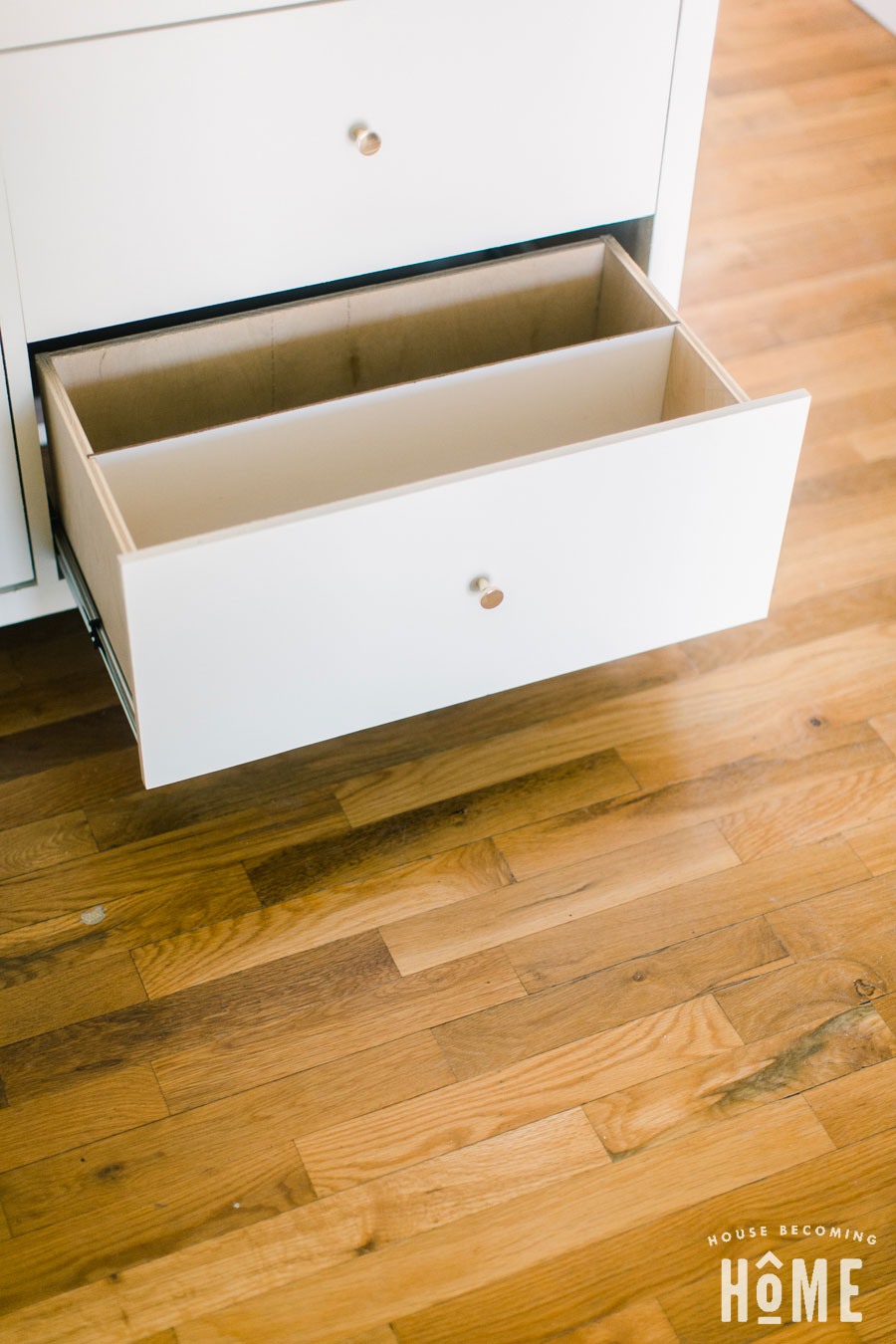
And of course the before and after. Pre-DIY-shoe-cabinet on the left, maximum-shoe-storage + an easily-kept-clean-space on the right. 🙂

What do you think? Could your home benefit from a DIY shoe cabinet? If you build one and share it online, please tag me on Instagram (@housebecominghome) or Facebook (House Becoming Home). I’d love to see a photo of your build!
